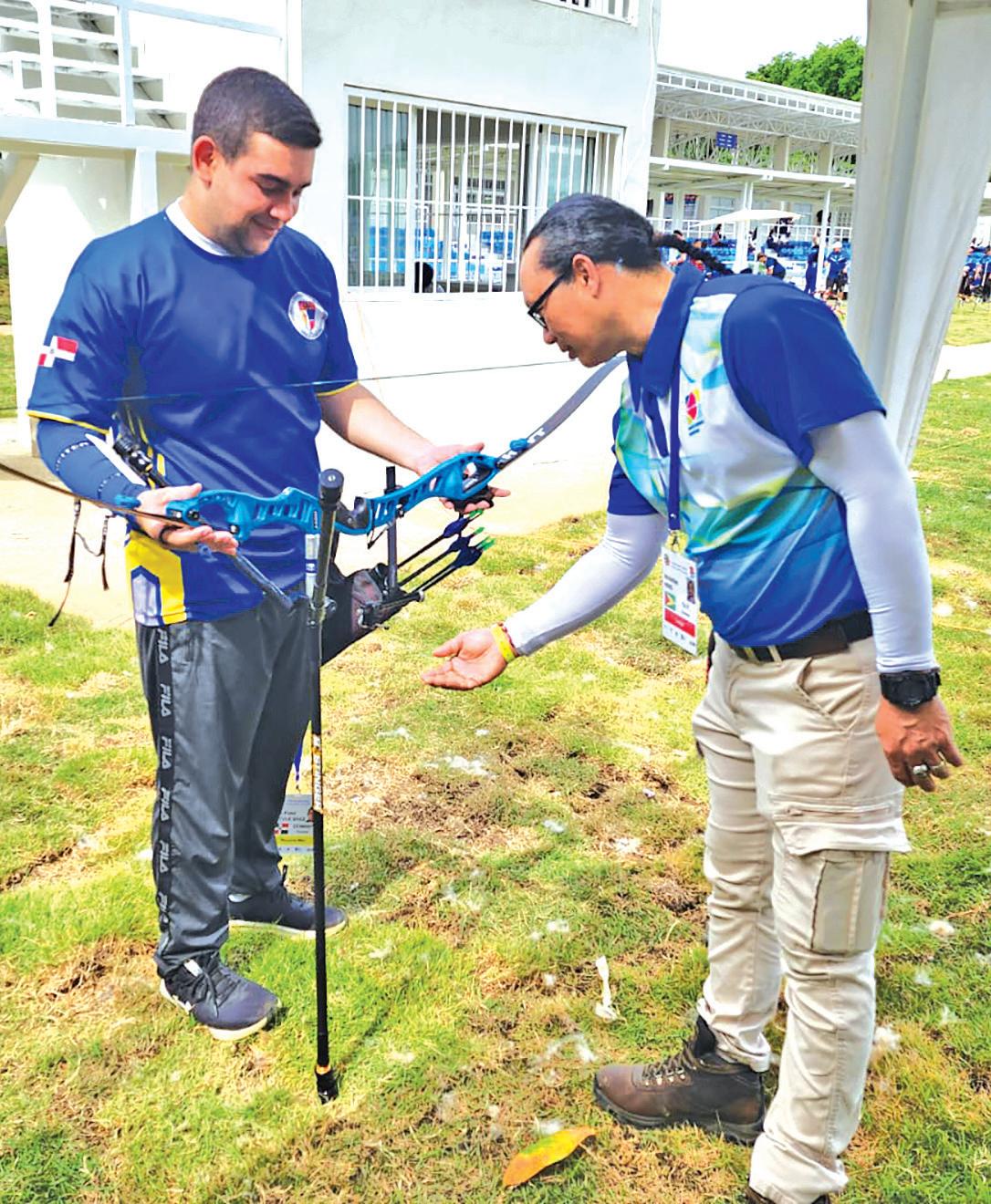











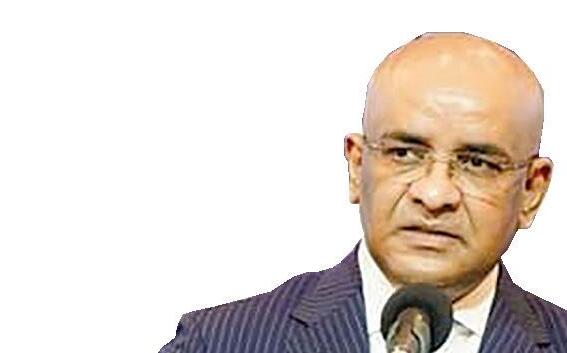
Former GTU President found guilty of rape
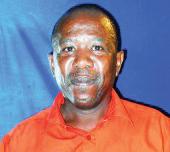
Knife attack at Vreed-en-Hoop leaves 1 dead …bowman claims self-defence
Court tells Paul Slowe to lead defence in sexual assault case

Major livelihood push for Hubu Village unveiled Govt workers to get 8% salary hike before September – Jagdeo
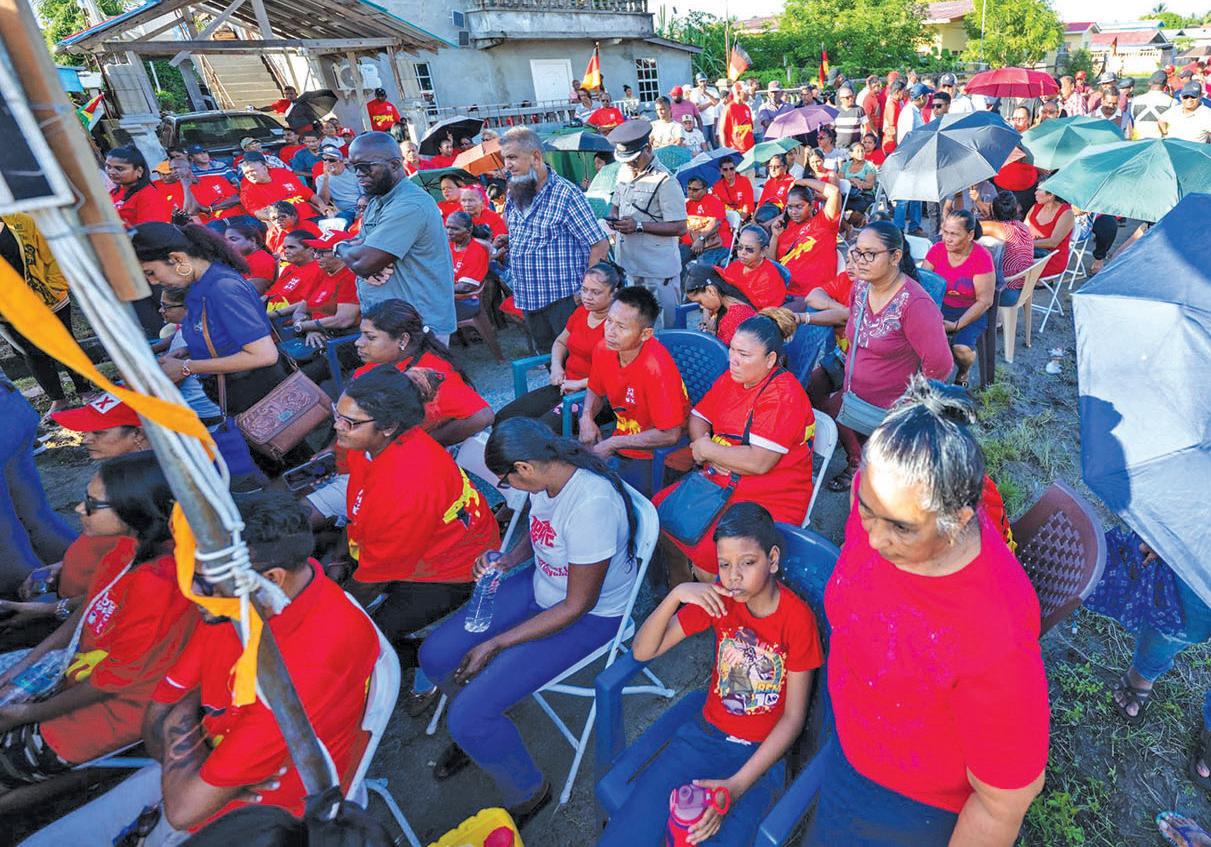
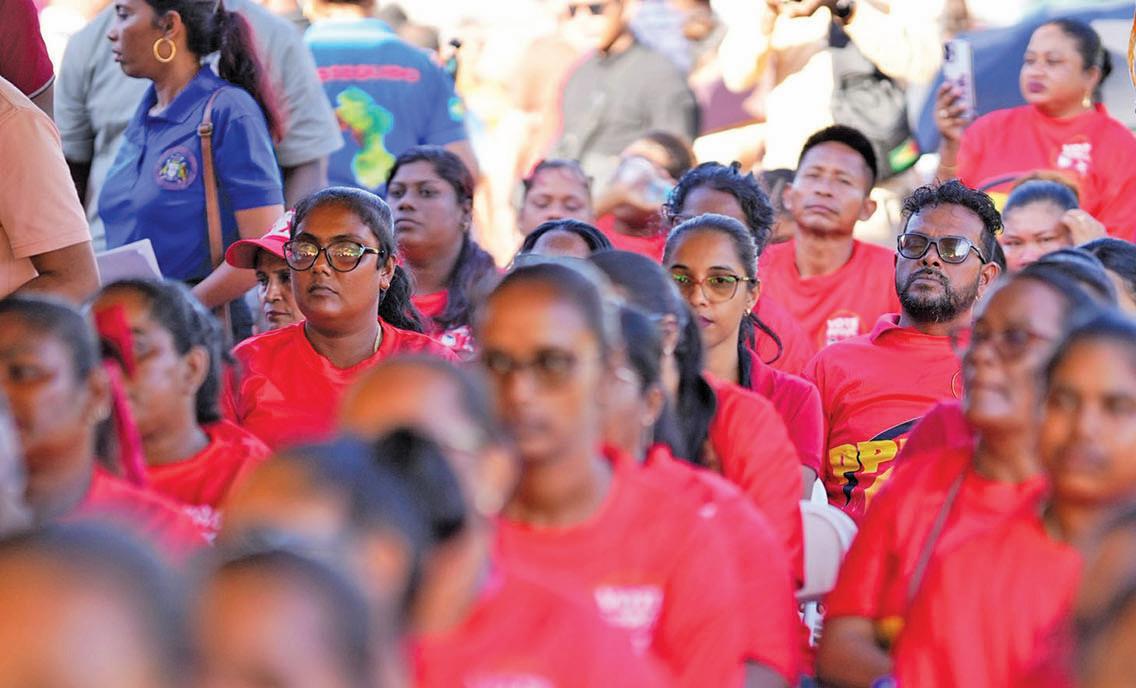
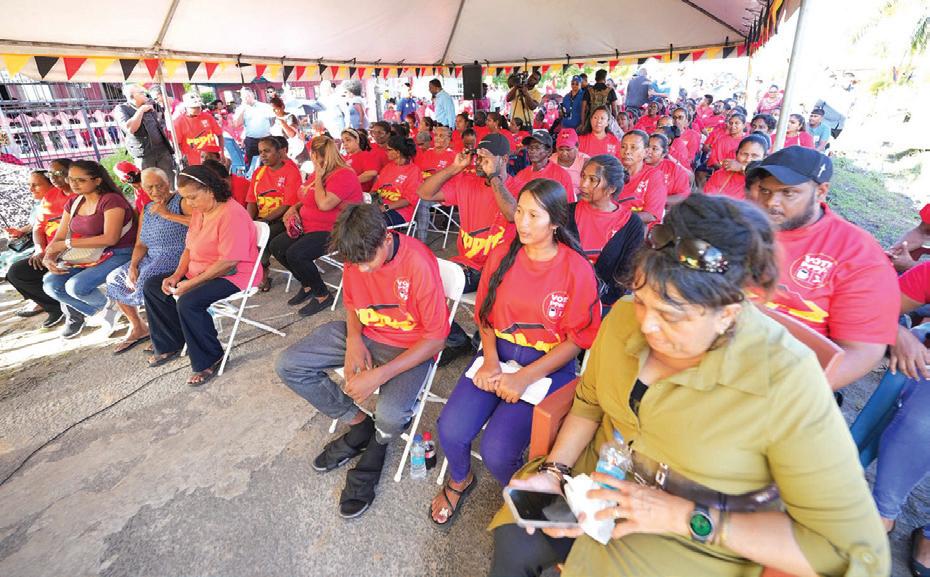
GECOM, UNDP host workshop to strengthen electoral integrity Gold miner slapped with murder charge

Govt considering electric tram, rail system to tackle traffic woes
Guyana launches 1st Mental Health Court



Vice President Bharrat Jagdeo has assured public servants that they would receive the eight per cent salary increase for 2025 before the upcoming General and Regional Elections on September 1.
This increase was part of a two-year agreement signed between the Guyana Government and the Guyana Public Service Union (GPSU) in December 2024.
“It’s going to be before [September]… It doesn’t make sense you pay the public servants after,” Jagdeo told reporters at a press conference on Thursday.

He said Senior Minister with Responsibility for Finance and the Public Service, Dr Ashni Singh, should already be putting systems in place for the pay-out.
That December 2024 deal, which also saw employees in the public sector benefitting from a 10 per cent retroactive salary increase last year that has already been paid out, came after extensive discussions and negotiations between
the Finance Ministry and the GPSU.
In fact, the GPSU earlier this month lauded the renewed tone of engagement under the current People’s Progressive Party/Civic (PPP/C) administration.
In a statement on June 8 to commemorate its
102nd anniversary, the GPSU named the December 2024/5 multi-year agreement among its recent wins, adding that it lays the foundation for ongoing improvements in working conditions and signals a renewed commitment to constructive engagement and public sector reform.
“We must also mention that since the appointment of Dr Ashni Singh as Senior Minister with responsibility for Finance and Public

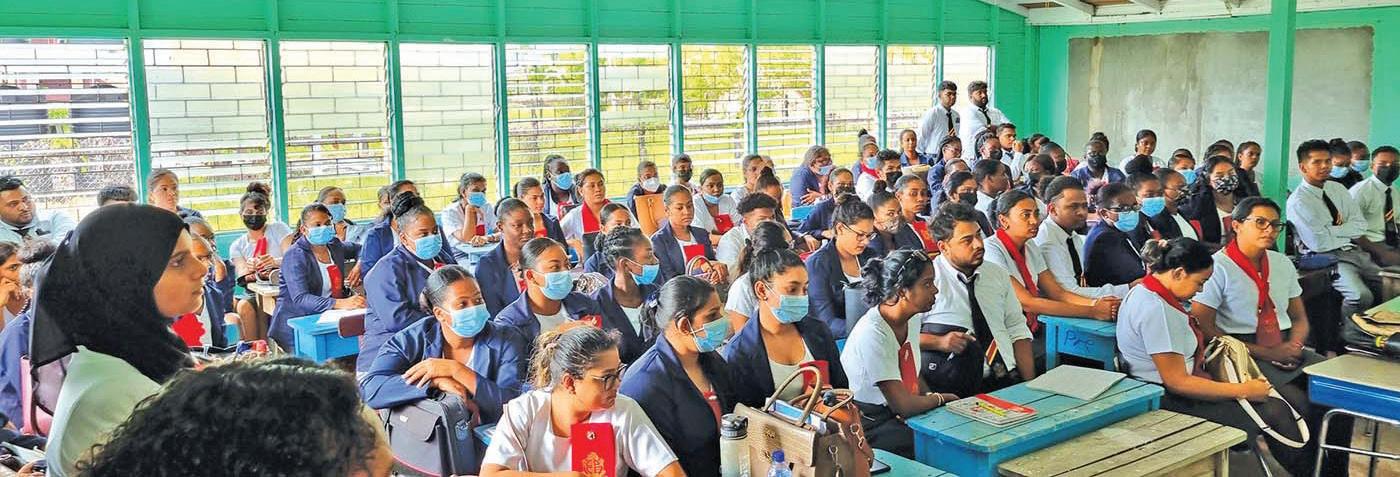

Service, there has been a noticeable shift towards a more respectful and constructive relationship with the GPSU,” the Union had stated, adding that “This renewed tone of engagement is promising and, if sustained, could lead to meaningful progress and a stronger partnership in addressing the needs of public servants.”
Under the PPP/C government, public servants, teachers, members of the Disciplined Services, and government pensioners have benefited, cumulatively, from annual salary increases to the tune of 46 per cent between 2021 and 2025. This includes 7 per cent in 2021, 8 per cent in 2022, and 6.5 per cent in 2023.
Meanwhile, in addition to salary increases, the government also announced that public servants in grades 1 to 6, with a minimum of four years of service, will be moved to the midpoint of their current scale, resulting in salary increases of up to 13 per cent for some employees. Those with a minimum of eight years of service within Grades 1 to 6 will be moved to the maximum of their scale, leading to salary increases of up to 26 per cent.
Additionally, public servants in Grades 7 to 8 with at least four years of service in their current scale will be eligible for an additional monthly amount equivalent to the nominal difference between the minimum and midpoint of Grade 6, providing increases of up to 11 per cent.
Also announced were qualification allowances to incentivise education and professional development, effective January 1, 2025, and other specific allowances. It noted too that the pub-
lic servants on secondment will also receive a $35,000 monthly housing allowance, as well as increases in risk, motor car and travel allowances.
These announcements were made by President Irfaan Ali while addressing ranks of the Guyana Police Force on December 11, 2024. In fact, the Disciplined Forces were not left out, as they also benefited from increases to housing and risk allowances last year.
Minister Singh had previously described 2024 as a landmark year for industrial relations in the public sector, with a number of historic multi-year agreements concluded.
Apart from the GPSU agreement, a threeyear Memorandum of Understanding (MoU) was also inked between the Guyana Teachers Union (GTU) and the Ministry of Education, following months of highly-tense negotiations and a standoff that included months of strike action by teachers last year.
The three-year agreement from 2024 to 2026 for salary increases and other benefits for teachers outlines a 10 per cent increase for 2024, an 8 per cent increase in 2025, and a 9 per cent increase in 2026. There is also an adjustable clause which stipulates that if a higher percentage increase is announced for the general public service, teachers will also benefit from the difference.
Moreover, the government was also able to reach an agreement with the University of Guyana Senior Staff Association (UGSSA) for a historic three-year agreement that mirrors the same salary increases as the GTU deal.


The Demerara Harbour Bridge will be closed to vehicular traffic on: Friday, June 27 – 03:55h05:25h and Saturday, June 28 –04:25h - 05:55h
JUNE






The Berbice Bridge will be closed to vehicular traffic on: Friday, June 27 – 05:05h06:35h and Saturday, June 28 –05:50 hrs - 07:20 hrs
Parika and Supenaam departure times – 05:00h, 10:00h-12:00h, 16:00h, 18:30h daily.
Thundery showers and sunshine in the late afternoon are expected during the day and cloudy showers are expected at night. Temperatures are expected to range between 24 degrees Celsius and 30 degrees Celsius.
Winds: North-Easterly to East South-Easterly between 1.34 metres and 3.57 metres.
High Tide: 18:07h reaching a maximum height of 2.45 metres.
Low Tide: 11:39h and 23:52h reaching minimum heights of 0.58 metre and 0.77 metre.










The governing People’s Progressive Party/ Civic (PPP/C) is gearing up to formally launch its campaign next month for the upcoming 2025 General and Regional Elections slated for September 1.
“We will formally launch our campaign in early July,” the PPP’s General Secretary Bharrat Jagdeo disclosed.
Speaking at the weekly press conference at the Party’s Freedom House headquarters on Thursday, Jagdeo said that the PPP is currently in the process of vetting individuals to go on its list of candidates that is required to be submitted to the Guyana Elections Commission (GECOM) on July 14, Nominations Day.
“That is a major undertaking in a party, where you often have, for every list, maybe four or five hundred people more who want to get on the list than you have space for… Everyone wants to be on the list, but you have to disappoint some people because you have limited space. So, we’re engaged in that process, and we’re trying to do it in a democratic way, consulting with the party activists and supporters on the ground across all 10 regions, and we’re now going through the final stages of that process,” he noted.
Similarly, the PPP General Secretary noted that vetting is also ongoing for candidates to be included in the backers list, which will be in compliance with GECOM’s prescribed form, which has a declaration at the top to indicate that persons are knowingly and willingly signing to support a particular political party.
Jagdeo called on the Elections Commission to ensure that all political parties utilise these designated forms to enlist nominators/ backers for the upcoming elections.
He alleged that “some people are paying to get backers, and some are being misled, and they [are] not showing people the form.”
“I hope GECOM will rigidly enforce that the appropriate form is used, because in the past…they will go with a blank sheet and get people to sign off, and then they will add a covering letter, and many of those people never even knew they were supporting a list of

candidates for a particular party; they may not even support that party,” the PPP General Secretary added.
Already, GECOM has received 24 symbols from political parties desirous of contesting in the upcoming elections. The Commission is expected to consider and approve these symbols by July 1.
On July 14, Nominations Day, parties will be required to submit their approved symbols and their Lists of Candidates: one National Top-Up List, at least six Geographical Constituencies’ Lists, and the Regional Democratic Councils’ Lists.
The National Top-Up list, which identifies the
presidential candidate, must have at least 42 candidates and between 300 and 330 nominators countrywide. Each geographical constituency list must have between 150 and 175 nominators from each geographical constituency.
But while the PPP is currently facing the challenge of excess candidates for its lists, Jagdeo says the situation is reversed for other parties that are having a difficult time enlisting candidates or backers.
“One political party with a criminal enterprise linked to it is calling people… They’re looking for people to be on their list because people are afraid of being sanctioned or getting into trouble,” the PPP General
Secretary stated.
Moreover, he was also asked during Thursday’s press conference to comment on the controversy surrounding one political party using Guyana’s national animal – the jaguar –as its symbol.
We Invest in Nationhood (WIN), the political party formed by US-sanctioned businessman Azruddin Mohamed, has submitted the jaguar as his party’s symbol – something that has stirred controversies within several groups, including the indigenous community.
In fact, Chairman of the National Toshaos Council (NTC), Derrick John, wrote GECOM on the issue, condemning the political use of the jaguar, which he says amounts to an “offensive desecration of one of our sacred symbols”.
According to the PPP General Secretary, this is a matter for the Elections Commission to ultimately decide on. But while he too believes that it is a desecration and understands the outrage, Jagdeo contended that it is not a “big deal” for the PPP, which will be using its traditional cup symbol.




Editor: Tusika Martin
News Hotline: 231-8063 Editorial: 231-0544, 223-7230, 223-7231, 225-7761
Marketing: 231-8064Accounts: 225-6707
Mailing address: Queens Atlantic Industrial Estate Industrial Site, Ruimveldt, Georgetown
Email: news@guyanatimesgy.com, marketing@guyanatimesgy.com
The announcement by Vice President Bharrat Jagdeo regarding the proposed introduction of a student transportation grant marks another significant chapter in the administration’s ongoing transformation of Guyana’s education landscape. As public investments in education reach historic levels and begin to yield tangible results, the government’s intention to alleviate transportation burdens signals a deepening of its commitment to educational equity.
Education policy in Guyana has undergone a fundamental shift over the past five years, underpinned by a strategic approach that places access, quality, and inclusivity at the forefront. The removal of fees for university and tertiary education, payment for national examinations such as CSEC and CAPE, and the expansion of targeted support programmes like the “Because We Care” cash grant and school feeding initiatives have all contributed to a more robust and responsive education system.
Introducing a transportation grant as part of this continuum is both timely and pragmatic. While infrastructure and tuitionrelated barriers are being dismantled, the challenge of physically accessing educational institutions remains a daily struggle in many communities, particularly those in hinterland and remote regions. Transportation costs, though often overlooked in broader policy discussions, represent a significant obstacle to consistent school attendance. By targeting this specific pain point, the proposed initiative addresses a crucial missing link in the education access chain.
This strategy is especially relevant in areas including the wider hinterland, where distance and terrain create logistical barriers. The government’s plan to deploy state-owned buses to serve these regions adds an operational dimension to the grant system, offering a hybrid model of financial assistance and public service delivery. Such a two-pronged approach has the potential to ensure both reach and reliability, provided the logistical and maintenance frameworks are solidified.
Equally important is the broader context in which this new policy is being introduced. The National Grade Six Assessment (NGSA) results this year indicate a 63% pass rate, the highest in the country’s history. These outcomes reflect not only improved academic instruction but also the increasing effectiveness of systemic investments. More classrooms, better-trained teachers, and targeted student support services have all contributed to these outcomes. The hiring of approximately 3,000 new teachers is a further testament to the scale and seriousness of the sector’s expansion.
Importantly, the government has adopted a nuanced understanding of success. Recognition is given not only to topperforming students but also to those whose progress may not be captured through examination scores alone. This holistic view is particularly significant in light of historical disparities. The restructuring of secondary school placements, which previously saw students in community high schools underperforming and dropping out, has led to a growing number of students completing secondary education and becoming eligible for CXC examinations. This trend is indicative of the progress being made toward universal secondary education, a cornerstone of any equitable national development agenda.
The path ahead, as outlined by the Vice President, involves deeper integration of technology and personalisation in the learning process. The envisioned rollout of digital schools, along with the adoption of artificial intelligence to tailor learning experiences, points to a forward-looking education strategy that seeks to equip students with 21st-century skills. These efforts must be matched with continued investment in teacher training, curriculum reform, and infrastructural resilience to ensure sustainability and scalability.
The case for continued prioritisation of the education sector is unassailable. An educated population is the foundation upon which economic diversification, social stability, and civic engagement are built. The gains already made are a result of deliberate policy direction backed by unprecedented budgetary allocations, from $53 billion to $185 billion in five years.
As Guyana approaches a new electoral cycle, the promise to expand educational support through the transportation grant initiative underscores the government’s commitment to inclusive development. Access to education must not be determined by geography, income, or circumstance. By continuing to remove barriers, whether structural, economic, or logistical, the administration affirms its belief that opportunity must be a right, not a privilege.
Viewed through this lens, the proposed transportation grant stands as a strategic extension of a broader, long-term commitment to educational equity.

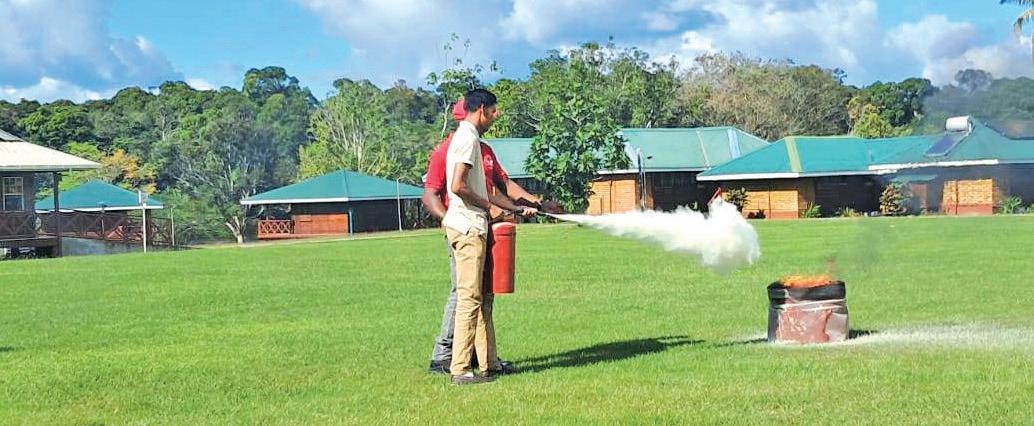
Easy regime change in Tehran is a nice idea. But look to history: it’s a near-impossible one
By Martin Kettle
On the eve of the 1991 Gulf War, a TV reporter asked the US commander Norman Schwarzkopf if he would topple Iraq’s Saddam Hussein. Stormin’ Norman replied with a memorable succinctness: “Easy to say. Hard do.”
Schwarzkopf knew what he was talking about. The general was a lifelong student of the Middle East region – he spent some of his childhood years in Tehran – and of military history. Indeed, his successful groundwar strategy for Saddam’s defeat in Kuwait was consciously modelled on the flanking tactics used to such devastating effect by the Carthaginian commander Hannibal to defeat the Romans at Cannae in 216 BC.
Regime change, now increasingly mentioned in connection with Iran, is the highstakes embodiment of an “easy to say, hard to do” policy. The world would obviously be a better place without repressive and aggressive regimes like the one in Tehran. But there is no lever that can be easily pulled, no button that can be pressed, that instantly replaces lasting tyranny with lasting happiness. To destroy is not the same as to rebuild.
Instead, regime change is a phrase that too often masks a multitude of enduring troubles and miseries, the majority of them suffered most severely by ordinary people whose regime has been changed. In the West, modern governments and their publics have had to learn this the hard way. The invasion of Afghanistan in 2001 and the Iraq War of 2003 still haunt our politics years later. The mangled outcome of the so-called Arab Spring of 2010-11 is a grim monument to the same naivety.
Yet the wish to see the back of Iran’s theocratic regime is right. Iran is one of the most repressive countries in the world. Arrests and trials are arbitrary. Torture, including flogging and amputation, is endemic. Executions are common. Oppression of women, minorities and migrants is institutionalised. Political activity and free expression are all but impossible.
And the regime’s vicious malignity is not felt just by Iranians. The Islamic Republic has exported its authoritarianism for years, via proxies from Hamas in Palestine and Hezbollah in Lebanon, and now by supplying Russia in Ukraine. It has financed and supported terrorism in the West. Its desire for nuclear weapons, with which it would threaten Israel, whose de-
struction it seeks, is relentless. So, if the opportunity presents itself, why not attempt to supplant such a regime? What’s not to support about its overthrow, especially at a moment when Hamas and Hezbollah, as well as Yemen’s Houthis, are militarily on the back foot and the country is feeling the impact of international sanctions? The early days of Benjamin Netanyahu’s Israeli onslaught on Iran appear to have done significant damage to the regime’s nuclear and military infrastructure and to have exposed limitations in Iran’s capacity to retaliate and to defend itself. So if not now, when?
The temptation is a very real one. In politics, as in war, the courage to seize the moment can be decisive. Bismarck regarded this as one of the ultimate tests of leadership, and he proved to be a master practitioner. Shakespeare made the same point in Julius Caesar when Cassius is told, “There is a tide in the affairs of men / Which, taken at the flood, leads on to fortune.” Remember, though, what happened to Cassius in the end. He lost.
Even so, the Iranian regime’s overthrow would remove an international threat – to Israel in particular, but also to the nations subverted and wrecked by Iran’s proxies. Nuclear proliferation would be set back. The terrorist threat would be disrupted. It would be bad news for Russia, which is eating its way through large amounts of Iranian war material, including drones. It would be a ray of hope for Ukraine. The relief for world shipping and commerce would be immense. Commodity prices might ease significantly.
So it would not be right to dismiss these arguments wholesale, especially if the main reasons for doing so are that Netanyahu is batting for it or because of anger at Israel’s onslaughts in Gaza, terrible though these unquestionably are. It would be equally short-sighted to oppose Iranian regime change merely because the policy may eventually be embraced by Donald Trump’s unpredictable White House. An enemy of Trump is not thereby our friend.
However, there are more serious and respectable reasons for caution. The first is that regime destruction does not imply successful regime change. It is possible that Israel, with or without Trump’s direct military support, will inflict enough damage on Iran to make it impossible for the regime to function. But what would come next?
Neither Israel nor the US has any intention of occupying a defeated Iran in order to run it. The dire lessons of Afghanistan, Iraq and Libya are still vivid. This is not Berlin in 1945.
In his broadcast to Iran this week, Netanyahu said Iranians should shape the new Iran. “We are clearing the path for you to achieve your objective, which is freedom,” he told them. Yet there is no presumptive Iranian government waiting in the wings. A regime promoted by Israel would surely struggle to survive. One backed by the US that allowed Trump and his allies to plunder and enrich themselves at Iran’s expense would do little better. Opposition to the theocratic state may indeed be as widespread as the 80% that Netanyahu claims, but at this point it is underground, inchoate and divided.
A defeated Iran would be a weakened but still extremely large, proud and important state. It would be rich in natural resources, an energy superpower, and still well-armed. Its ethnic and religious mix would seize the opportunity to assert their rights and claims. Adherents and apparatchiks of the ancient regime would, however, be everywhere, not least in the armed forces and the police. These are precisely the ingredients that could signal an explosion of civic instability, possibly lasting for years.
Do not forget, either, that Iran still remains a revolutionary regime. Rulers who come to power by completely overthrowing their predecessors, as the Iranian Islamists did in 1979, can become paranoid regimes. They may never surrender, as Ayatollah Khamenei insisted yesterday. But a weakened and angry Islamic republic looks as likely an outcome as a replaced one.
History tells us that regime change for revolutionary regimes is a particularly messy business. The overthrown regimes may have been difficult to establish in the first place. But the ones that replace them do not have it easy either. Think France in 1815 or Russia in 1991. Germany was only rescued from the abyss of Nazism through a combination of clear international agreement, US economic aid, military occupation and pragmatic compromises with German institutions. The outcome was a collective triumph. It was, though, an exceptionally rare event. Nothing like it is on the cards in Iran. Be careful what you wish for. (The Guardian) (Martin Kettle is a Guardian columnist)

Peruvian Foreign Affairs Minister Elmer Schialer met with Guyana's Permanent Representative to the Organisation of American States (OAS), Samuel AA Hinds, with the aim of strengthening bilateral relations.
Both officials discussed promoting political exchange, cooperation, and trade, as well as the future
opening of a Peruvian embassy in Georgetown, the Peruvian Foreign Affairs Ministry reported on the X platform.
The meeting took place in the context of the Peruvian diplomat's visit to Antigua and Barbuda to attend the 55th Regular Session of the OAS General Assembly currently underway. Foreign Affairs Minister Schialer also held
a bilateral meeting with Trinidad and Tobago's Parliamentary Secretary, Wilfred Nicholas Morris, to strengthen political, trade, and cooperation ties.
Similarly, they agreed to follow up on bilateral and regional commitments with the Caribbean Community (Caricom).
(andina.pe)
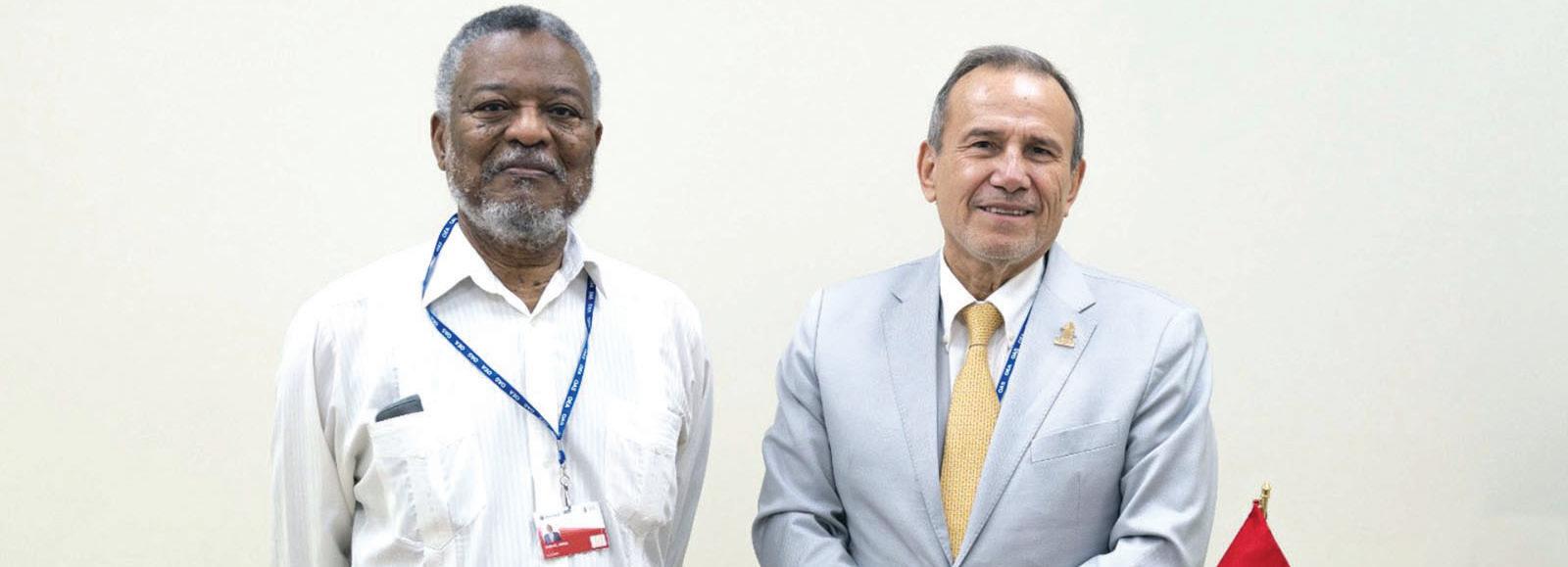
Dear Editor, I have written many a letter in the same vein as that of Dr Jerry Jailall’s, which was featured in the Stabroek News on Sunday, 22nd June 2025. Dr Jerry Jailall wrote responses to my letters in the past, and many citizens were moved. I had written open letters to H.E. the President and also to the general public.
Personally, I believe the government of our great country has tried in some way or form to assist contributors of NIS who are suffering by giving the ten billion dollars to support the system in the form of a grant. It is noted, but this grant is not a pension, in my opinion, as well as most of the citizens in the county. It is understood that it does not solve the problem. It may help those of the lower contributory levels. However, those who would have contributed 700-749; it does little to no help for them, in my opinion. Many people in this country are in pain; they are in pain particularly because they cannot draw a pension, and they will have to live for the rest of their lives hand to mouth when the few hundred thousand dollars are finished. You may also recall the general public and Excellency my letter dated January 28th, 2023, in particular (featured in the Kaieteur News), which I believe moved you all and also moved the government.
In addition to letters to the media, I also did sever-
al readings and discussions on “IN THE RAW” on my PEOPLE’S FREE MEDIA. However, I am extremely disappointed with the way it was addressed. Therefore, I will once again explain a case in point with a relative of mine, hoping this will touch the heart of the government, particularly Excellency the President Irfaan Ali, VP Jagdeo, PM Mark Phillips, and the entire cabinet to understand what is happening here with this grant. In the case of this lady, whose name is Umawattie Singh. NIS was offering her a settlement of Eight Hundred Thousand Dollars. Then, Excellency, the Government of Guyana, then came your offer; in that case, she would be getting less than what NIS offered her.
She is insisting she is entitled to her full pension with back pay. Now look at this. She is an almost-crawling old woman on a pavement, not having any kind of schooling but knowing and understanding the importance of a pension as a fruit vendor. She registered for NIS, and that needs to be applauded. That person needs to be used as an example to tell all Guyanese who are vendors and such like how they can get a pension by making the sacrifice to enjoy their old age. Today she is in pain and depression because that seven hundred & forty thousand dollars is more like being cheated. Mr President, I am repeating she was also offered a refund
of her excess payment, yes, excess payment! NIS offered her the sum of eight hundred thousand dollars, and you, through your grant, are offering seven hundred & forty thousand dollars.
I wrote in the print media as well as shared my very concerns on the matter on social media. Why give the people less if they are entitled to more? Or why not give the full pension? She paid seven hundred and forty-nine contributions. I repeat seven hundred and forty-nine contributions, and she was misled by NIS; I repeat, she was misled by NIS, Mr President, Government of Guyana. She was misled by NIS, and I am repeating for emphasis. Her intention was so good that she paid over thirty extra contributions! When she went in to get her pension, they calculated her contributions and told her she was short one contribution. I am of the opinion that I saw in the media when the president was announcing this grant that it is catering for the full sum up to seven hundred and forty-nine contributions. Can you believe this, Mr President? She was short of one, so they offered her a grant of eight hundred thousand dollars with the refund of the overpayment. They misled her, and in between, they were not sending her reminders. Because she is self-employed, such ridiculous and archaic inhumane laws exist in a supposed liberated country like ours, with a presi-
dent like you, Dr Irfaan Ali. This should have never happened, and so she, like many others, should be able to get their pensions. The ridiculousness of the law is that self-employed persons cannot pay to make up for the few they might have erred/ missed paying.
It is my firm view that this grant that the government is giving to the contributors of NIS, which is less than the grant that they would have collected from NIS, should be combined with the NIS grant. What I am saying is that the NIS grant, like in the case of my relative, the eight hundred thousand dollars should be combined with the seven hundred and forty thousand dollars.
I had suggested, Mr President, the oil belongs to us, not to Exxon! Not to contractors; it belongs to the people of Guyana. In that recommendation or suggestion, I said to give one oil lift to the NIS (or ½ or 1/3) to ensure that we, the people, can benefit and enjoy some life, especially the pensioners.
As I said, Mr President, you and your government in such a legal way could win the elections for generations, but you need to fix this NIS I repeat, Mr President, you need to make a decision and fix this NIS as a human being and as president. You are President Irfaan Ali, a human being! You are a gentleman, you are a scholar, and you have a cabinet comprising scholars. As I end, I
ask you to listen to Dr Jerry Jailall and Christopher Ram (I have not seen Mr Ram’s letter) and those that I have written over the decades to fix this NIS quickly; time is upon us, Mr President. You will win the election, but you want to take this election with a historical landslide. Fix the NIS problem, sir. Excellency President Dr Irfaan Ali.
Sincerely, Hajji Dr Roshan Khan

FRIDAY, JUNE 27, 2025
00:00 Sign Off 06:00 Cartoons 07:00 Evening News (RB) 08:00 HGTV 09:00 Stop Suffering 10:00 Food Network
12:00 News Break
12:05 Indian Movie - Saina (2021) 14:30 The Fairly Oddparents
15:00 How I Met Your Mother S1 E20
16:00 Indian Soaps 17:00 The Young & The Restless 18:00 Aljazeera 18:40 GRW 2025 - Nikkei Guyana 19:00 The Evening News 19:45 AEMG Episode 37 20:00 Stop Suffering 20:30 Stand-up Comedy 21:00 Movie - The Devil Wears Prada (2006) 23:00 Heartland S1 E10






A proportion is a problem that contains two ratios that are equal. In a proportion problem, one of the numerators or one of the denominators is not known. The method for finding the missing numerator or denominator is called cross-multiplying.
A recipe calls for 3 tablespoons of nuts in order to make nutty pancakes for 6 persons. How many tablespoons of nuts do you need to make nutty pancakes for 20 persons?
Step 1: Express a proportion problem that uses two ratios:

Step 2: Remove the words:

Let’s use t (for tablespoons) for the number we do not know:

Step 3: To cross-multiply, you must set up an equation. An equation is a mathematical statement that two things are equal.
Step 4: On one side of the equal sign, write the first numerator x the second denominator: 3 x 20 =
Step 5: On the other side of the equal sign, write the multiplication of the first denominator x the second numerator: 3 x 20 = 6 x t
Step 6: Multiply the side that does not have the unknown number: 60 = 6 x t
Step 7: Look at the side that has both a known number and the unknown quantity. Divide both sides of the equation by the known number. (In this equation, that number is 6). You need 10 tablespoons of nuts to make nutty pancakes for 20 persons.

When you divide both sides of an equation by the same number, the expressions on both sides remain equal.





By Walt
13
The negro holds firmly the reins of his four horses, the block swags underneath on its tied-over chain,
The negro that drives the long dray of the stone-yard, steady and he stands pois’d on one leg on the string-piece, His blue shirt exposes his ample neck and breast and loosens over his hip-band, His glance is calm and commanding, he tosses the slouch of his hat away from his forehead, The sun falls on his crispy hair and mustache, falls on the black of his polish’d and perfect limbs. I behold the picturesque giant and love him, and I do not stop there, I go with the team also.





In me the caresser of life wherever moving, backward as well as forward sluing,
To niches aside and junior bending, not a person or object missing, Absorbing all to myself and for this song. Oxen that rattle the yoke and chain or halt in the leafy shade, what is that you express in your eyes? It seems to me more than all the print I have read in my life.



My tread scares the wood-drake and woodduck on my distant and day-long ramble, They rise together, they slowly circle around. I believe in those wing’d purposes, And acknowledge red, yellow, white, playing within me, And consider green and violet and the tufted crown intentional, And do not call the tortoise unworthy because she is not something else, And the jay in the woods never studied the gamut, yet trills pretty well to me, And the look of the bay mare shames silliness out of me.





US Secretary of State Marco Rubio on Thursday announced a new visa restriction policy for family members and close personal and business associates of individuals sanctioned under Executive Order 14059.
In June four Guyanese nationals were sanctioned for drug trafficking. They are Senior Superintendent Himnauth Sawh, Paul Daby Jr, Mark Cromwell (a former policeman), and Randolph Duncan. The sanctions were announced on June 5 by the US Department of the Treasury’s Office of Foreign Assets Control (OFAC).
"We will use all necessary
zens," he added. Sawh was serving as Police Commander of Region One (Barima-Waini), last September when some 4.4 tonnes of cocaine with a street value of over G$40.7 billion, were discovered hidden in several bunkers near an illegal airstrip at Matthew’s Ridge.
Following the announcement of the sanctions earlier this month, Sawh was sent on administrative leave to facilitate an investigation. Sawh joined the Guyana Police Force (GPF) on June 3rd, 2008; his last posting is at the Force’s Projects Office.

tools to deter and dismantle the flow of fentanyl and other deadly drugs from entering our country," Rubio said in a statement.
In an official press release, the US State Department explained that the "the fentanyl crisis in the United States is unprecedented, with overdoses remaining the leading cause of death for Americans ages 18 to 44. More than 40 percent of Americans reportedly know someone who has died from an opioid overdose, and in 2024 the United States averaged over 220 overdose deaths daily."
Rubio said this action expands upon existing tools, including sanctions pursuant to E.O. 14059 and visa ineligibilities pursuant to section 212(a) (2)(C) of the Immigration and Nationality Act for controlled substance traffickers.
"Imposing visa restrictions on drug traffickers, their family members, and close personal and business associates will not only prevent them from entering the United States, but it will serve as a deterrent for continued illicit activities," he said.
"The US Department of State will use all necessary tools to deter and dismantle the flow of fentanyl and other illicit drugs from entering the United States and harming US citi-
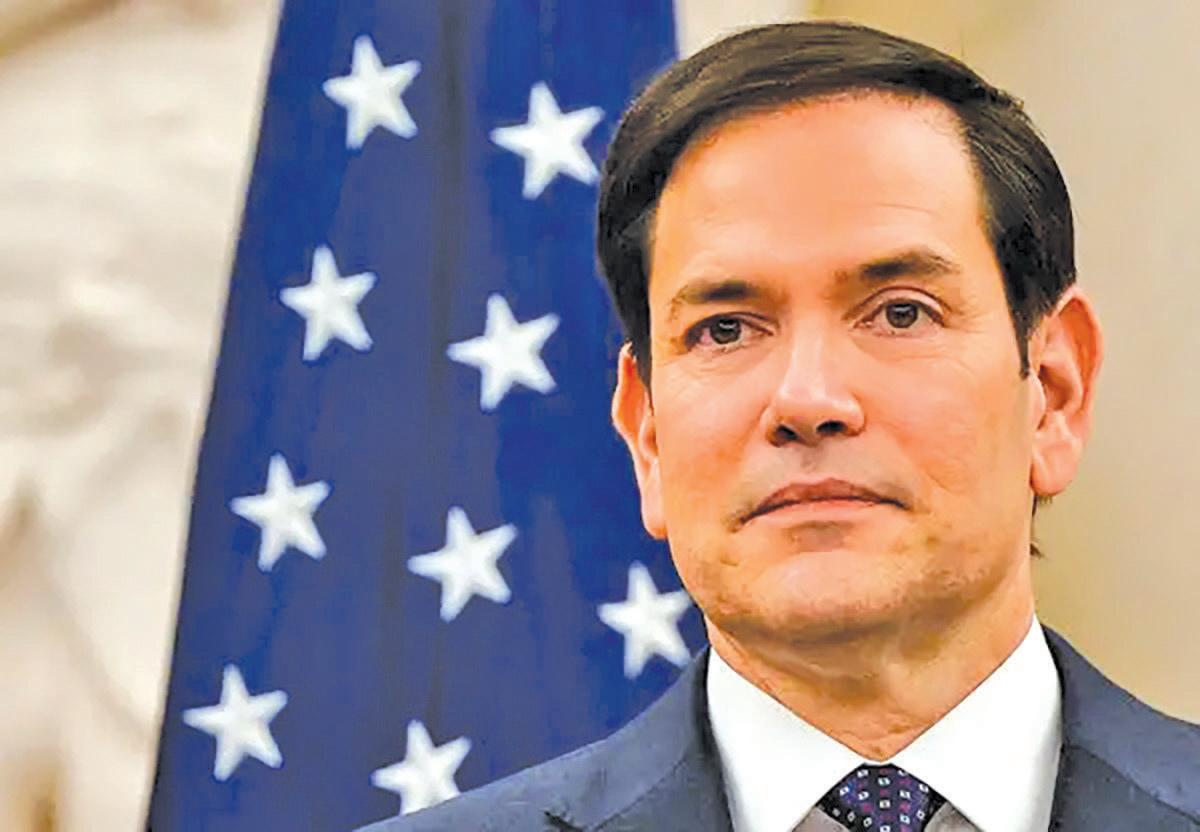
The Treasury Department stated that Guyana’s proximity to the Caribbean, as well as alleged corruption along its ports and borders, allows aircraft and maritime vessels, also known as narco-submarines, to transit through its waters undetected.
It noted that drug traffickers exploit the rivers and jungles of South America by transporting large quantities of cocaine from Colombia and Venezuela through Guyana and Suriname.
According to the US officials, Guyana has been the focus of major US law enforcement operations in the last few years that were done in partnership with Guyanese authorities and resulted in several multi-ton seizures of cocaine.
Following the announcement of the sanctions by the US, the senior cop was sent on administrative leave.
Guyanese operators
According to the Treasury Department, Sawh “…has ensured safe passage to Colombian and Venezuelan traffickers through Region One.”
Moreover, it was noted that Daby Jr and Duncan “…operate the largest drug trafficking organisations in Guyana and rely on maritime vessels and aircraft to conceal and traf-

fic cocaine, while also allegedly bribing Guyanese officials to facilitate their drug trafficking operations.”
The Treasury Department said Daby Jr traffics tonne quantities of cocaine, coordinating the shipment of loads from Colombia and Venezuela via aircraft, and utilising illegal airstrips in Guyana. He also relies, the statement added, on a network of individuals to conceal and transport cocaine in shipping containers from the ports of Guyana and Suriname.
It was further outlined that Daby Jr is also involved in transporting illegal gold from Guyana via maritime vessels.
Moreover, the Treasury Department revealed that Duncan traffics cocaine from Guyana to Africa and the Caribbean, with Europe and the United States as the ultimate destinations.
With regard to Cromwell, who is also a former Police Officer, he was described by the US officials as “a violent drug trafficker and associate of Daby Jr”.
Cromwell has been implicated in a number of criminal activities over the years including an alleged abduction of a former Guyanese Police Officer back in October 2024, and he
was charged for assaulting a cop the previous year.
According to the Treasury Department, the two Colombian nationals sanctioned are responsible for overseeing the clandestine airstrips used to transport tonne-quantities of cocaine via aircraft from Colombia to Guyana.
“OFAC designated Daby Jr, Duncan, Cromwell, Sawh, Sanchez, and Salazar pursuant to EO 14059 for having engaged in, or attempted to engage in, activities or transactions that have materially contributed to, or pose a significant risk of materially contributing to, the international proliferation of illicit drugs or their means of production,” the statement detailed.
This is the second time in the past year that the OFAC has issued sanctions against Guyanese.
Sanctioned Mohameds
In 2024, the United States had also announced sanctions against Nazar Mohamed, his son Azruddin Mohamed, several of their associated companies, and government official Mae Thomas.
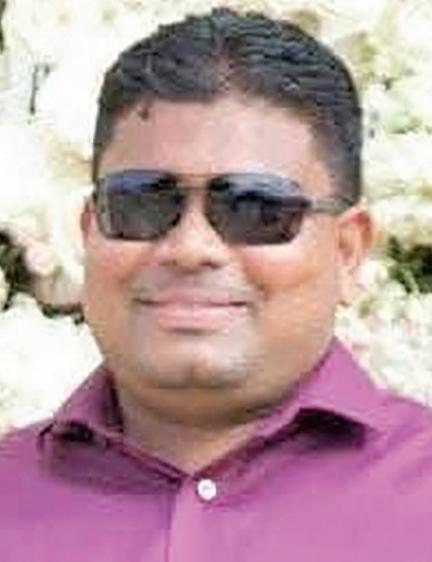
The sanctions were issued over their alleged roles in public corruption.
According to an official OFAC statement, the sanctions stem from a large-scale tax evasion scheme related to gold exports. Between 2019 and 2023, Mohamed’s Enterprise is alleged to have omitted more than 10,000 kilograms of gold from import and export declarations—resulting in the evasion of over US$50 million in duty taxes owed to the Government of Guyana. Despite the allegations, the Mohameds have denied any wrongdoing.
In a Reuters article published on July 14, 2023, it was revealed that the family is under investigation by several US agencies, including the Drug Enforcement Administration (DEA), the Federal Bureau of Investigation (FBI), and the Department of Homeland Security.
Citing five sources with direct knowledge of the matter, Reuters has reported that the Mohameds are suspected of smuggling both Colombian cocaine and Venezuelan gold to international markets. Further, an intelligence report referenced in the investigation suggests that they may also be involved in laundering money for drug traffickers and crim-

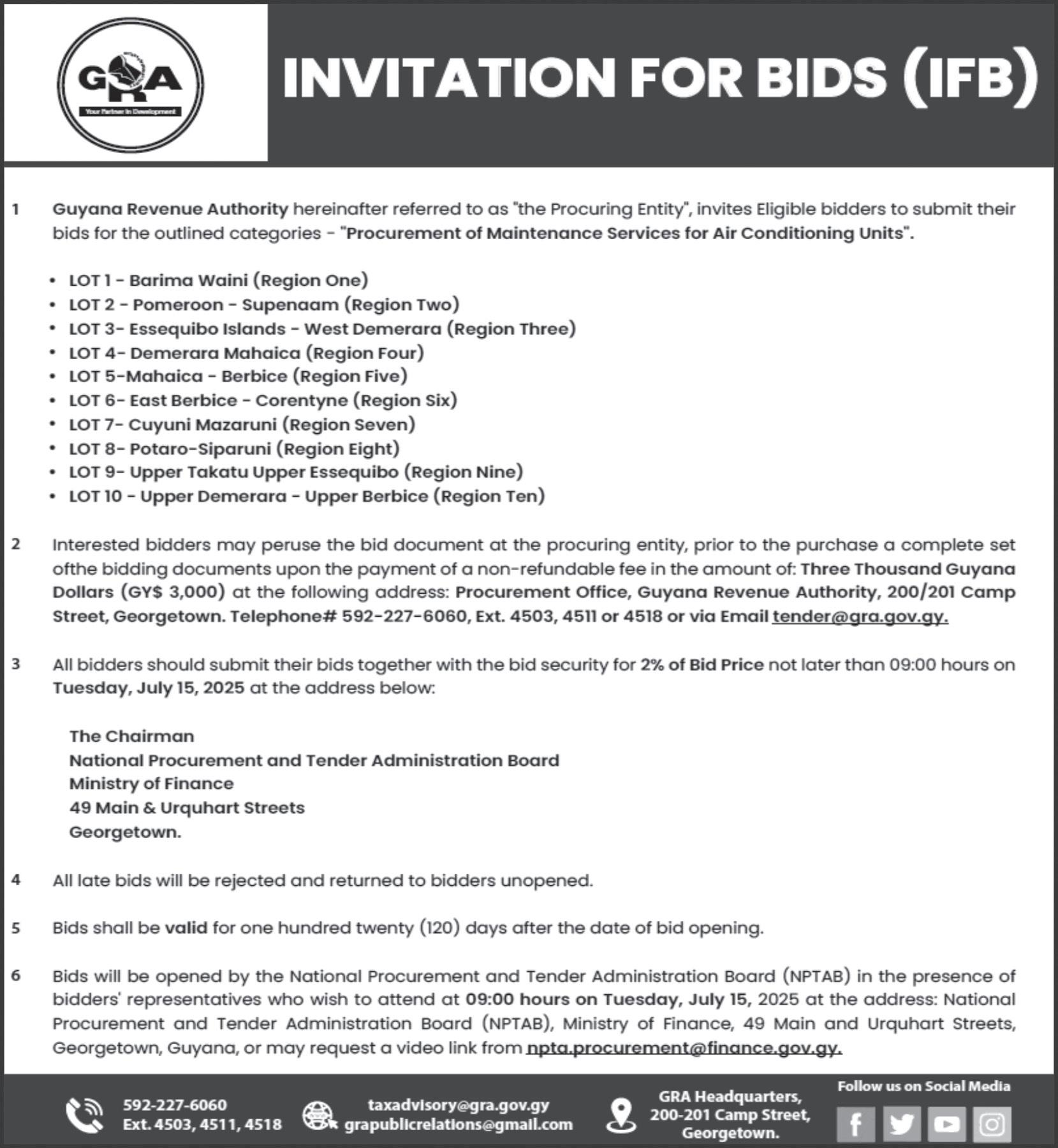

Ajury on Thursday found former President of the Guyana Teachers’ Union (GTU), Colwyn King, guilty of raping a child.
The unanimous guilty verdict was returned on two counts of rape of a female child under 16 which occurred in April 2021. During the trial, it was revealed that the offence was committed at night and then again in the afternoon where no one else was present.
King, who was previously on $350,000 bail pending the trial, was immediately remanded to prison by Justice Simone Morris pending sentencing on July 17.
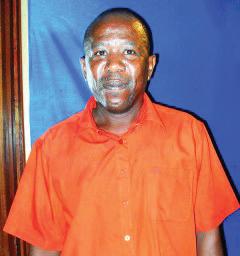
The prosecution was led by State Counsels Muntaz Ali and Geneva Wills. Attorney-at-Law Tonza Sarrabo represented King.
In October 2011, he was committed to stand trial in the High Court having been charged and granted bail on November 13, 2009.
In 2009, King faced a similar rape charge and was acquitted by a jury in 2016. He was accused of raping a child at a Princes Street, Georgetown hotel in 2009. On October 28, 2011, he was ordered to stand trial at the High Court, after being released on $100,000 bail. He was acquitted of that charge. King had resigned from his post of President of the GTU and Administrator of the Guyana Industrial Training Centre, when he was arrested after the child levied the rape allegation against him.
SSlowe in relation to a charge of sexual assault.

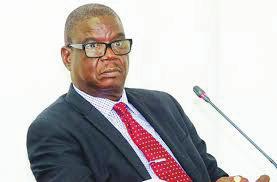
The decision was handed down at the Georgetown Magistrates’ Courts. Slowe, who was charged on October 15, 2021, under Section 4(3) of the Sexual Offences Act, Chapter 8:03, is accused of sexually assaulting a female officer on three separate occasions in March and April 2019 at Police Headquarters, Eve

Leary. The no-case submission was presented by attorneys-at-law Nigel Hughes, Dexter Todd, and Dawn Cush, who contended that the prosecution had failed to establish sufficient evidence to support the charge. However, Magistrate Azore, in her ruling, held that the prosecution had presented a prima facie case against the accused, thereby requiring him to lead a defence. The matter has been adjourned to October 2025 to allow Slowe and his legal team to prepare and present their defence. Appearing for the prosecution was Senior Police Legal Advisor and Attorney-at-Law Mandel Moore.


ell, it’s that time of the year once again!! That time when we became the only country on the planet to go ga-ga over the scores of our 11-year-olds in the exams that allow them to move from primary to secondary school. If you think your Eyewitness is exaggerating, just tell him in which other country such scores make it to the FRONT PAGES OF EVERY NATIONAL NEWSPAPER!! See?? So, what does that mean? Simply, that in the education field – even though we came out of colonialism sixty years ago – we’re still at the lowest stage of development when it was a big thing for our children to get into “Queen's College”!!
After slavery – as a mark of great progress – primary schools were launched by the Church – and funded by the government. To be “educated” meant you passed through primary school, and imagine you could become a “pupil teacher” at that point!! What the heck could you teach apart from the “Three Rs” – reading, ‘riting and ‘rithmetic? Queen's College had been created as the first secondary school just after slavery was abolished for the sons of the lily-white rulers – including some of their coloured ones from their slave concubines. Bishops' soon followed for their daughters.
Much later a “Common Entrance” exam was launched in the primary schools for a small number of students in 4th Standard across the country to earn a “scholarship” to Queen's or Bishops'!! And this is where we’ve been stuck ever since – even though secondary schools have been built in every community!! That doesn’t mean there haven’t been changes – but the fact we’re all so excited about who will get into “Queen's” means that nothing’s really changed!
Somewhere at the beginning of this millennium, we were told that the “Common Entrance Exam” was changed to the National Grade Six Assessment (NGSA). This was supposed to be “revolutionary” since the kids were now gonna be ‘ASSESSED’, not tested – and so scores wouldn’t REALLY matter!! Yet the top 100 kids “assessed, not tested” get to attend Queen's!! Your Eyewitness can be excused for insisting the changes are a distinction looking for a difference!!
Anyhow, this year we have something to smile about – that overall, only 37% of our kids FAILED in all four subjects they are assessed (not tested!) in – as opposed to 51% back in 2015!! Breaking that down in maths, 44.49% failed; in English, 30.75% failed; in social studies, 35.23% failed; and in science, 36.3% failed.
So, as your eyewitness has been emphasising every year at this time, we shouldn’t only be going into paroxysms of joy over the Queen's-bound cohort – but we should lend a hand to the 37% who failed overall!!
…to the East Side??
In New York, Manhattan’s Upper East Side – from 59th to 78th Streets on Fourth Ave and up to Third Ave – is regarded as the city’s most elite address!! Well, if Zohran Mamdani – the new kid on the block who just got the nod to become the Democratic Party’s candidate in the upcoming mayoralty race – has his way when he wins, every New Yorker’s gonna be able to live on their own East Side!!
While Mamdani is a newcomer to the democratic establishment, for years all he did was work with the poor to prevent the indignity of home foreclosures that would’ve thrown them into the streets. He got to know the lived reality of the poor – and crafted a campaign on “affordability to live”. He struck a chord in even the middle class, which is having problems making ends meet with the steep inflation in food, clothing and housing. Maybe there’s a lesson for OUR politicians in the 27 registered parties come Sept 1st!!
…the ladder
Now that we’ve hit the big leagues – what with being a major oil producer at 1 million barrels a day by 2027 and growing – we gotta start playing the part!! Adopting Texas’ wide-brimmed hats or Arab keffiyehs?








Vice President Bharrat Jagdeo says the government is considering the possibility of introducing a tram system within the capital city of Georgetown in order to improve the public transportation sector and reduce congestion on the roadways.
This system, he ex-
plained, could be powered by electricity and connect commuters at various points in Georgetown. He noted that with over 300,000 people living between Golden Grove on the East Coast of Demerara (ECD) and Diamond on the East Bank of Demerara (EBD), the system will serve as a relief to commuters.
Noting that no plan has been finalised, Jagdeo further suggested that a railway system could be implemented to connect commuters from certain populated communities to a station which can then connect with the tram system.
“So, if you connect the road from the rail and you


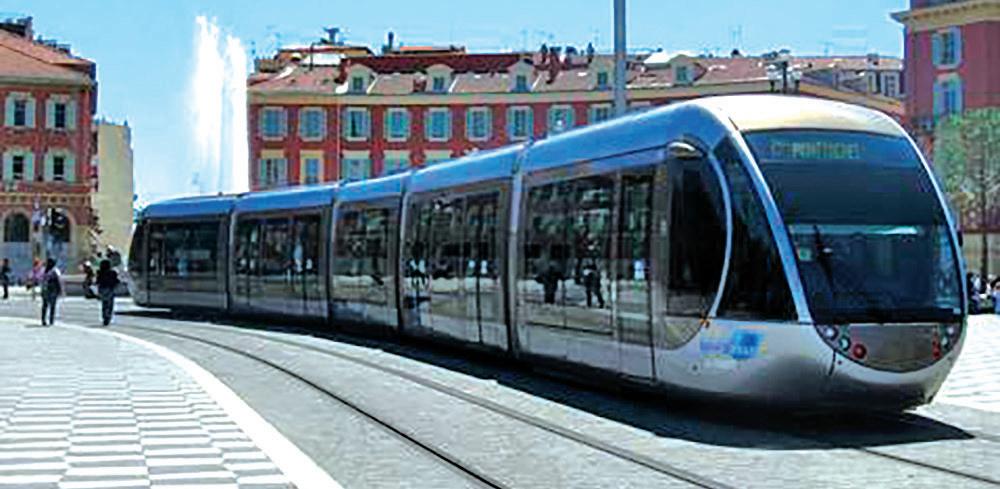

have a station from Ogle, East Coast Demerara (ECD) and you jump on it, you can get into various points in the city without congestion.” he suggested.
He also floated the idea of developing a parking facility outside of the city and then connecting that location to the tram system to head into Georgetown.
“Nothing has been finalised, but we’re looking at it seriously,” Jagdeo said, adding that the focus right now is to expand the road network across the country.
He pointed out that the Heroes Highway was built to ease congestion on the East Bank of Demerara but that too is already becoming congested.
Moreover, the Vice President said when the Government lowers taxes on the importation of vehicles during the next term, there will be an even larger influx of vehicles into the country – necessitating the need for more roadways.




President Dr Irfaan Ali has announced an ini-
tiative aimed at income generation through egg production for residents of Hubu Village, East Bank Essequibo, Region Three (Essequibo Islands-West Demerara).
Speaking at a community meeting with residents of Hubu Village on Thursday, the Head of State highlighted the severity of the issue and how the move can benefit residents, especially females.
“There is another big issue that we have. We have a shortage of duck on the market, so the ministry is now running a programme called the Duck Breeding Programme. Now, this is not a programme where you will be eating the ducks that you are rearing.”
He explained that the programme is solely focused on egg production for hatching purposes.
“This is a programme where we will help you – especially women – to set up a facility, but you must sell the

eggs back to us. The ministry buys those eggs from you. So, for those persons willing to participate in the Duck
Breeding Program, we are ready to support you.”
The Guyana Livestock Development Authority


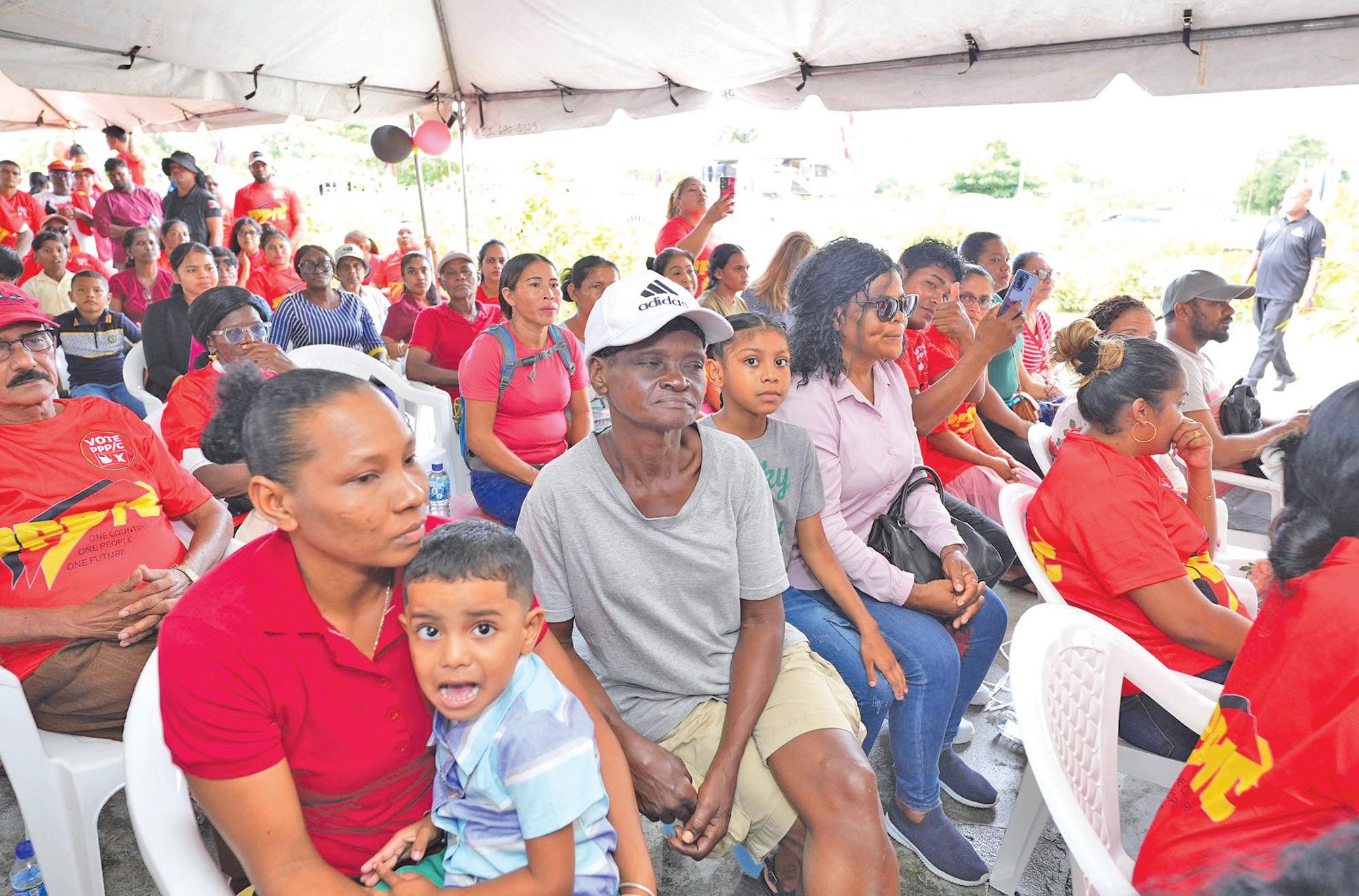
(GLDA), through the Agriculture Ministry, is actively involved in a duck breeding programme, primarily focused on Muscovy ducks for meat production. They have imported ducklings from the US to enhance their breeding stock and support local farmers. The GLDA also provides farmers with ducklings for rearing, and the authority has invested in a modular duck processing facility to handle the growing production.
Meanwhile, the Guyanese leader also emphasised the government’s commitment to supporting other agricul-
tural initiatives.
He revealed that 20 hybrid rams will soon be made available to farmers in the area.
“We are willing to make 20 of those hybrid rams available to the farmers here. We’ll bring them, and you all can decide how you want to deploy these rams. Dr Waldron will be working with you on this.”
Keeping his focus on agriculture, President Ali highlighted infrastructural development plans, particularly the construction of three critical bridges leading to Morashee Village (East Bank Essequibo).
“Another issue we have is the condition of three heavy-duty bridges going to Morashee. These bridges were brought to my attention, and we are going to invest in them. I’ve asked the engineer to design those bridges, and by next week we should go out to tender so that the contracts can be awarded in the coming weeks.”
When the president asked if the bridges were important to the residents, the crowd responded with a resounding round of applause and scores of enthusiastic “yes”, affirming their significance to the community.
A24-year-old gold miner of Train Line, Port Kaituma, North West District, Region One (BarimaWaini), and Hill Street, Albouystown, Georgetown, was on Thursday remanded to prison after being charged with the murder of Rayon Lall.
Mark Junior George appeared before Magistrate Rabindranauth Singh

at the Port Kaituma Magistrate’s Court via Zoom, where the indictable charge was read to him. He was not required to plead. The charge stems from the fatal incident that occurred on June 22 at Kaituma. Following investigations, George was arrested and taken into custody.
The case has been adjourned to September 11.

The Guyana Elections Commission (GECOM), in collaboration with the United Nations Development Programme (UNDP) in Guyana, through a strategic and valuable contribution from the Government of the United Kingdom (UK), successfully hosted a one-day workshop on ‘Strengthening Communication Strategies for Electoral Integrity’ at the United Nations House in Georgetown.
According to a GECOMUNDP joint press release, the initiative reflects the
shared commitment of GECOM, UNDP and the UK in fostering transparent, inclusive, and credible electoral processes.
The workshop, it noted, was designed to enhance GECOM’s strategic communication capacity in the leadup to the 2025 elections.
Additionally, it demonstrates the importance of proactive, timely, and accurate public engagement, which are essential to building trust in democratic systems—particularly in an era of rapid information flows and increasing disinformation.
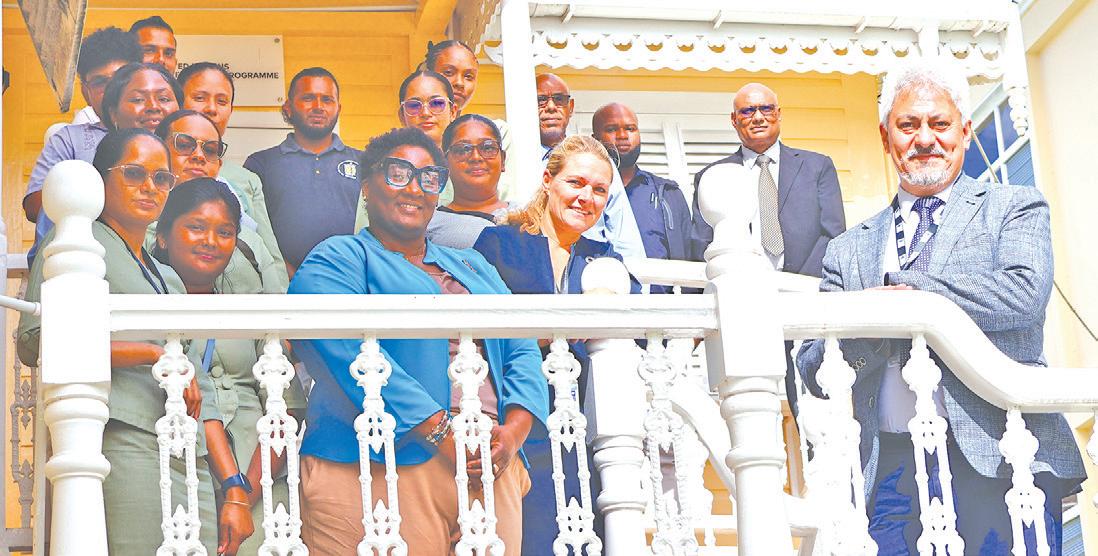
The workshop served as a platform to align efforts toward a unified vision of informed civic participation
and institutional resilience, the release stated.
It covered a range of critical topics, including civic and
voter education strategies; promoting information integrity and countering disinformation; anticipating public information needs and managing the news cycle; crisis communication planning and response; media engagement and relationship building; and social media management and digital outreach.
Participants engaged in interactive sessions, scenario-based exercises, and peer learning activities designed to equip them with practical tools and frameworks for effective public engagement.
A key outcome of the
workshop, it noted, was the development of a unified GECOM-branded identity for the 2025 elections, along with strategies to reach diverse voter groups, including youth, first-time voters, women, persons with disabilities, and marginalised communities.
The workshop concluded with a renewed commitment from both GECOM and UNDP to continue building institutional capacity for strategic communications and to foster inclusive, informed, and peaceful electoral participation.
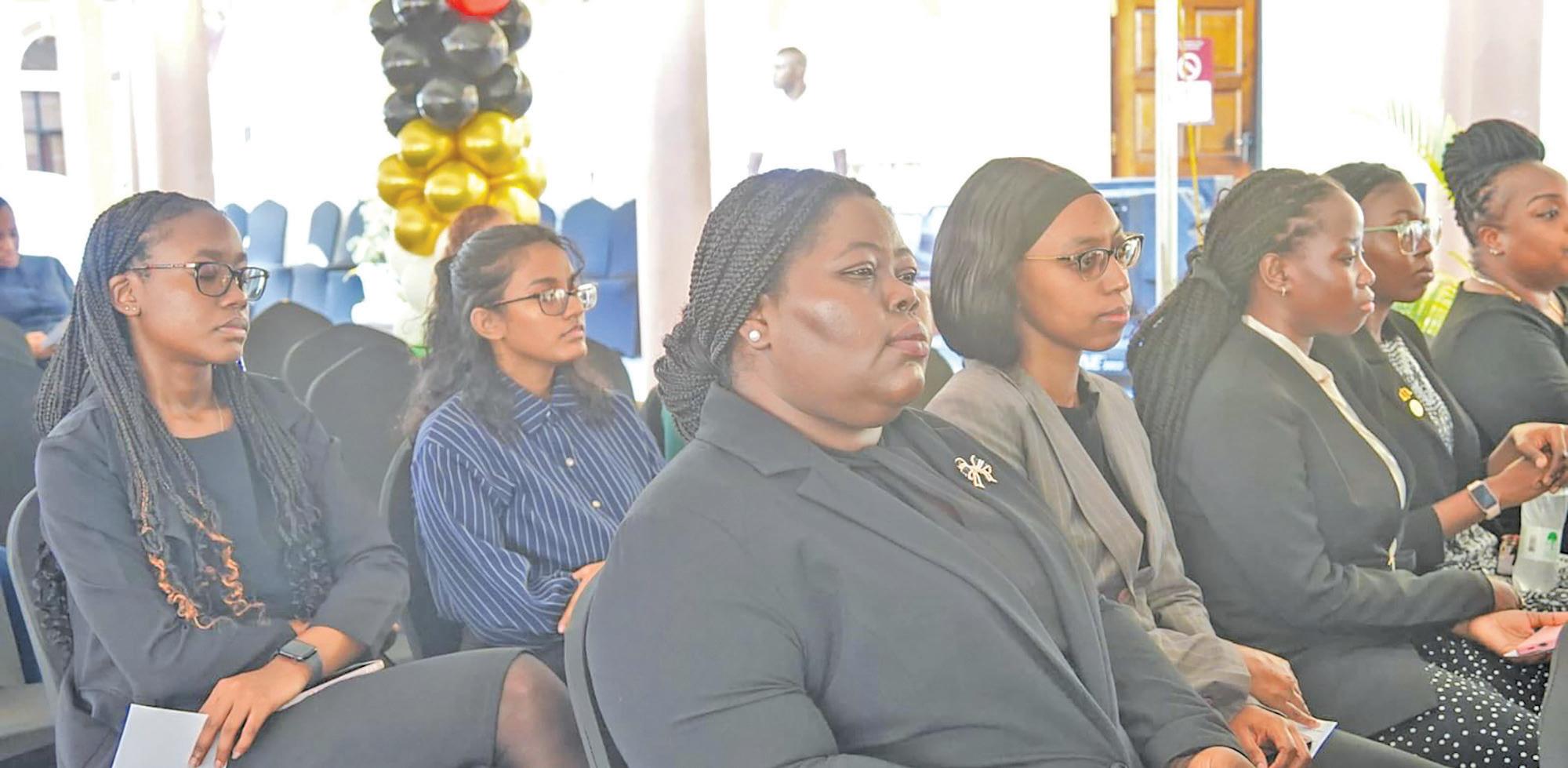
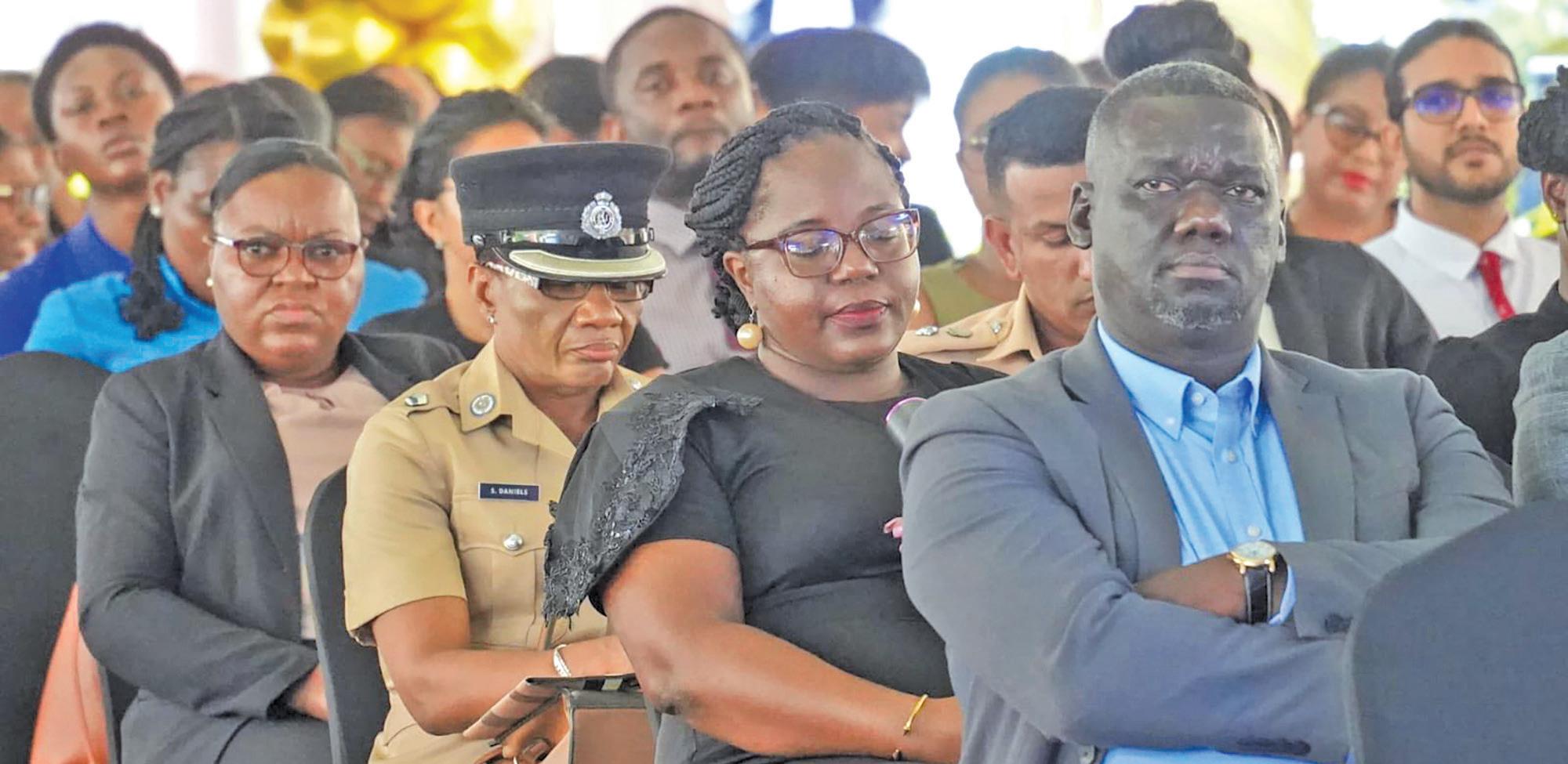
Members of the audience. Also in attendance were Judges, Magistrates and other stakeholders
Guyana has launched its first-ever mental health court, aimed at assisting defendants whose mental health conditions may have contributed to the commission of a crime. The court seeks to ensure these individuals receive appropriate treatment and support, rather than punishment only.
Launched shortly after the recent opening of the Children’s Court at the Charity Magistrate’s Court in Region Two, the Mental Health Court is another progressive step in Guyana’s evolving judicial landscape.
The initiative aims to create an enabling environment for individuals charged with offences who have been assessed as experiencing mental health challenges.
Social services officers are expected to work closely with a multidisciplinary team to provide vital resources and support to these individuals as they navigate the justice system.
Speaking at the launch, Attorney General Anil Nandlall highlighted the specialised services the court will offer.
He explained that the court was established to address the gaps in mental health care within the prison system and affirmed the government’s commitment to improving the health and well-being of all Guyanese.
“It is our policy that persons must receive proper health care, wherever they live in Guyana,” Nandlall asserted.
He applauded the judiciary for taking the bold step of establishing a specialised
court to ensure that persons living with mental illness receive the appropriate care and support.
He added that the court aligns with the government’s
ceedings.
Nandlall further noted that legislation may need to be developed to govern how the Mental Health Court operates. He said rules and reg-
and upholding human rights in Guyana, especially for persons living with mental health conditions. He stated that the Mental Health Court will play a significant role in
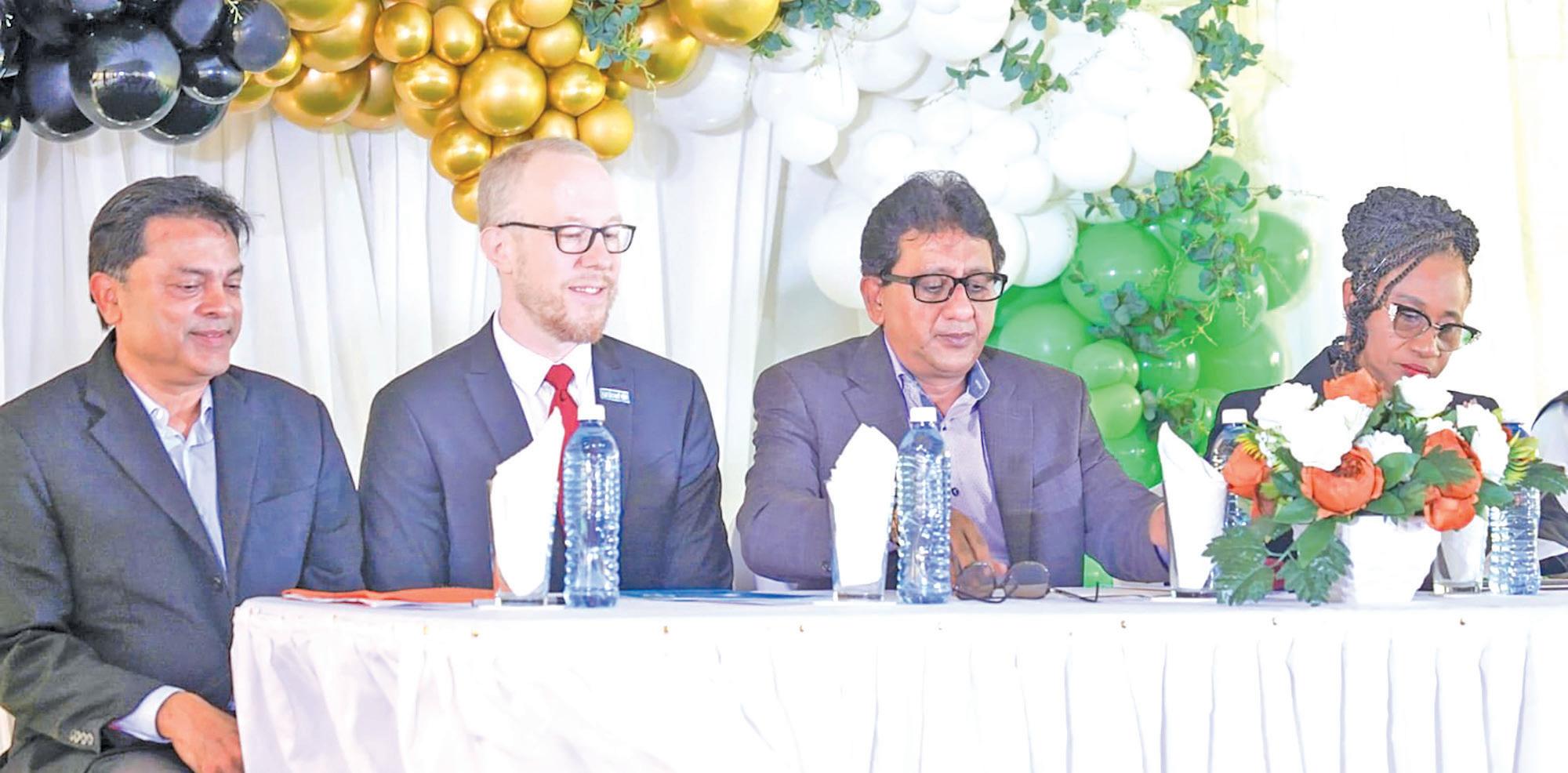
policy to improve the lives of persons with mental health conditions, reduce the prison population, and lower rates of recidivism.
“This specialised court adds to the complement of specialised courts already in existence within our legal system,” Nandlall said.
He also referenced Section 21 of the Mental Health Protection and Promotion Act 2022, which provides that every person with a mental illness shall have equal access to justice and the right to participate in the administration of justice.
Nandlall added that the court is expected to employ appropriate procedural accommodations to ensure persons with mental illness can fully participate in legal pro-
ulations may also be required to guide its procedural aspects and assured the judiciary that the Government of Guyana-particularly the Attorney General’s Chambers-stands ready and willing to assist in that regard.
Prior to the court’s establishment and the enactment of the Mental Health Act in 2022, defendants living with mental illness were dealt with under the Mental Health Ordinance of 1930-a remnant of colonialism. That ordinance was based on the UK’s 1890 Lunacy Act, inherited by Guyana during its time as a British colony.
Nandlall acknowledged the need for continued legal reform and emphasised the importance of protecting
achieving that goal.
“Historically, persons living with mental illness faced severe discrimination and stigmatisation and were relegated to the fringes of society. We all grew up in that environment,” he said.
“In common parlance, those persons were referred to as ‘mad’, ‘crazy’, or ‘insane’, and their conditions were grossly misunderstood. Today, our society has made great strides in recognising that every person in Guyana must have their human rights protected and respected-especially their right to health.”
He continued, “There is still much to be done, as upholding human rights in mental health care is of utmost importance if our soci-
ety is to develop in the direction we hope.”
Quoting the World Health Organisation, he stated, “Mental health is a state of mental well-being that enables people to cope with the stresses of life. And Madam Chancellor, we have a lot of stresses in life to deal with.”
He concluded that mental health is an integral component of health and well-being.
In his view, it underpins
Guyana’s individual and collective ability to make decisions, build relationships, and shape the world Guyanese live in. The establishment of the mental health court was first announced earlier this year by Acting Chancellor of the Judiciary, Madam Justice Yonnette CummingsEdwards, during the ceremonial opening of the 2025 legal year.


The People’s Progressive Party/ Civic (PPP/C)
Government has outlined some bold initiatives for its next term in office with an expanded housing programme and community enhancement initiatives to enhance the safety and security of citizens.
Vice President (VP) Bharrat Jagdeo detailed these and other plans during his weekly press conference on Thursday. He noted that the Government needs to build more communities to cater to the growing number of Guyanese who are coming of age to apply for house lots and then put systems in place to help them finance the construction of their homes.
Already, the PPP/C administration has a host of assistance programmes for homebuilders, ranging from the construction of homes, the Steel and Cement Subsidy programme, the removal of VAT on locally produced construction materials, increasing the ceiling for low-income mortgages at commercial banks from $8 million to $20 million, and restoring the ceiling on
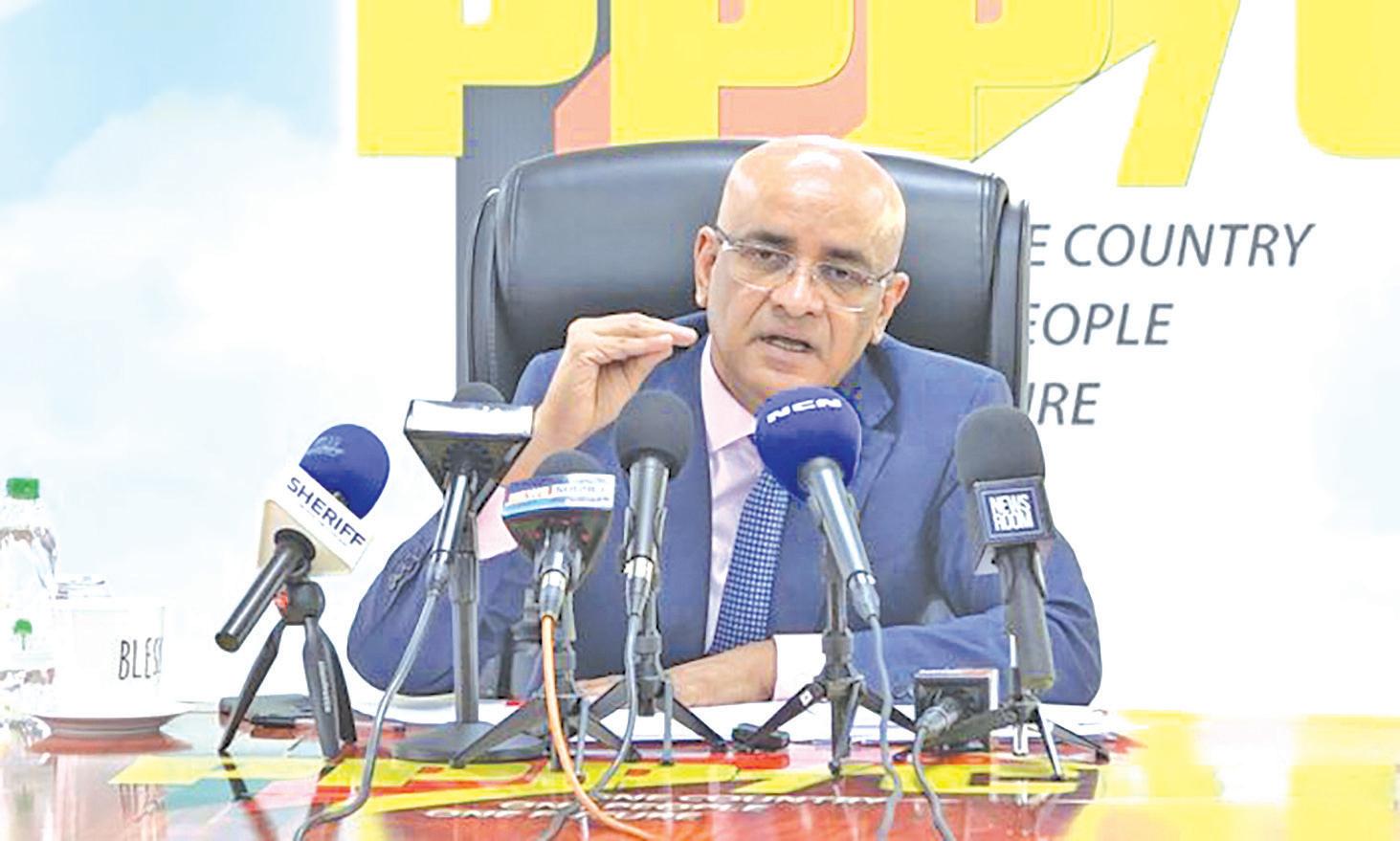
Mortgage Interest Relief for housing loans to $30 million, among others.
According to Jagdeo, the PPP/C will create additional mechanisms outside of the mortgage benefits, through the taxation system, to support homeowners.
“We’re going to use the taxation system to give greater allowances and deductibles for people who are building homes… We’re going to continue with co-home building… We’re going to continue vastly expanding young professional homes; we’ll accelerate the pace. And then, we are going to support people financially and materially – we’re already doing that with the steel and cement foundation –
but support them financially also to build more homes,” he stated.
However, with plans to establish more communities across the country, the VP assured that existing communities would not be left behind, as he highlighted initiatives like a massive concrete drain programme to improve drainage; installation of street lights; enhancing sport and recreational facilities; security cameras and police outposts/patrols to tackle crime; improving garbage collection; and addressing pollution like noise.
“These are the things we want to focus on … so people can live a safer and better quality of life in their own communities.
So, it will be more communities through expansion of the housing programme and also safer communities by massive investments,” the VP stressed.
He went on to point out that with the Government already embarking on a massive infrastructure transformation programme across the country with plans for major projects like new four-lane highways, bridges, port facilities, airport expansion and power plants, the next term will see emphasis placed on building out infrastructure to serve specific purposes.
For instance, Jagdeo pointed to economic growth. He explained that quality infrastructure supports increased income and income diversification of all businesses, big and small. He added that building out new infrastructure also opens up more land that can be used for commercial activities.
Another area that the Government plans to use infrastructure to enhance is social welfare – supporting things like education and healthcare delivery across the country. Improving the quality of
life of Guyanese will also be a top priority through initiatives like sport and recreational facilities.
The VP also spoke about the importance of having climate-resilient infrastructure.
“So, those four areas are the objectives for us to build the infrastructure, not infrastructure just for the purpose of [building]. It’s not a vanity thing or because we want to spend money… These four objectives are vital for a good quality of life for our people,” he asserted.
Shifting momentum
Also key to enhancing the quality of lives for Guyanese is support for income and economic diversification. To this end, Jagdeo detailed plans to expand thriving economic activities to other regions across Guyana.
Focusing on support for small businesses, he noted that initiatives like a Diversification Support Centre and investment in a development bank to offer zero-interest loans will expand commercial activities.
With the country’s oil and gas sector mainly con -
centrated within Regions Three and Four, the VP noted that plans are in play to have more regions benefit from this burgeoning industry and create more jobs.
“We will then also redirect some of the momentum into places like Berbice from the oil and gas industry… We’re already saturated labour-wise in [Regions Three and Four]. So, if you take, for example, the new gas development hub that will be done [in Berbice], it will have a major impact on Regions Five and Six… [So, there will be a] major shift in focus of some of the larger projects in the outlying areas to lend momentum to these areas.”
“This, along with the opportunity for people to invest more in instruments created by the Government, would allow more people to earn more money and to have better-paying jobs right across our country for people who need those jobs, and it would lead also to the expansion of the entrepreneurial base of our country. So, that’s another big focus that we want to look at,” VP Jagdeo stated.



The Central Islamic Organisation of Guyana (CIOG) has announced that both its schools in Georgetown and Meten-Meer-Zorg have attained 100% passes at the 2025 National Grade Six Assessment (NGSA) exams. According to the CIOG, pupils who sat the NGSA attained senior secondary schools in Georgetown and its environs.
In addition, all passes recorded at the NGSA exams were of distinctions, and these were also attained by students at the Meten-MeerZorg Islamic Academy.
The schools, run by the
Central Islamic Organisation of Guyana, continue to deliver teaching and education of the highest quality. These results for 2025 are a testament to this, the CIOG noted.
The organisation acknowledged the assistance it has received from the Government of Guyana and the Ministry of Education.
“Their distribution of ‘We Care’ cash grants for school
uniforms, among other forms of donations, are a direct outcome of the results our learners achieved,” it said.
The CIOG expressed its gratitude to its sponsors, who “have been an immense support system and lifeline for the less vulnerable learners and orphans.”
“It is not only impressive that these pupils have excelled but that their experience at CIOG was one that made them able to fulfil their dreams and potential,” it added.
The organisation pointed out that its objective is to equip and groom pupils and students with necessary information and academia, as well as discipline and a conductive attitude towards learning.
“Our intention, and one that we strive to continue to do, is to create well-rounded, productive citizens of our country.” the CIOG stated.


Within a year, the Guyana Government will be introducing its Single Electronic Identification System, which, Vice President Bharrat Jagdeo on Thursday said would be issued to foreigners in the country, enabling easier identification and tracking.
The new ID card, which will also be issued to every Guyanese, will be an electronic identification card equipped with biometrics.
“Everyone else who is not Guyanese will have to have a residency card with the same security features with their biometrics too,” he said, noting that the cards would be differentiated by colour for citizens and foreigners.
Without their IDs, foreign residents will be prohibited from opening a bank account and obtaining employment, since employers will be required to
ensure they are in possession of this new document.
The Government of Guyana in 2023 signed a US$35.4 million contract with Germany-based company Veridos Identity Solutions for the implementation of the national electronic ID.
Jagdeo said that with this new ID card, “at any given moment, we will know of all of the people who are in our country who are not Guyanese, and wherever they’re from. We will have their biometrics too so when we put in the 3000-4000 security cameras around the country, we will be able to tell you exactly where they are.”
He was at the time commenting on the influx of Venezuelan migrants into the country, noting that for far too long, it has being peddled that the Government was unaware of the magnitude of the presence of Venezuelans

in Guyana and the potential security threats this posed.
“We are taking this threat seriously,” he noted.
Detectives in Regional Police Division Three are probing the alleged murder of an unidentified man of African descent, who was reportedly stabbed to death on Wednesday, June 25, around 18:00h at the Vreed-en-Hoop Stelling on the West Coast of Demerara.
According to police reports, the deceased was discovered by a 56-year-old security guard attached to the Vreed-en-Hoop boathouse. The guard recounted that around 18:10h, he observed the man exiting the stelling and sitting on a bench beneath a yellow stall, visibly bleeding from both sides of his upper body. With the assistance of two bystanders, the injured man was placed into a vehicle and transported to the West Demerara Regional Hospital. However, he succumbed to his injuries on his way.
Police were immediate-

ly notified, and a team of investigators visited the hospital. The body was photographed and examined, revealing three stab wounds to the upper body. The man’s identity remains unknown up to press time, and his body has been transported to Ezekiel Funeral Home, where it awaits a post-mortem examination.
Based on information received, investigators subsequently located the alleged suspect, a 22-yearold bowman from Wales, West Bank Demerara, at the Georgetown Public Hospital. The suspect was
found with injuries to his upper left arm, upper left torso, and back.
During questioning, the suspect claimed he was robbed of passenger fare money by the deceased, who then allegedly attacked him with a knife, inflicting the injuries. The suspect further alleged that he managed to disarm the man and retaliated by stabbing him.
He was arrested and taken into custody at the Vreed-en-Hoop Police Station.
Police investigations are ongoing.

Further, noting that not every detail of what is being done to safeguard the country’s borders could be disclosed, the VP
echoed the sentiments of the Chief of Defence Staff of the Guyana Defence Force (GDF), Brigadier Omar Khan, that a hu -
manitarian approach was also needed.
“I can assure you that this is being done, and we take the presence of the migrants in Guyana seriously; but we also want to be compassionate too, because, at various times in our history, our people sought economic refuge in Venezuela and Suriname,” he explained.
Jagdeo added that “what we are doing now with the national ID cards will give us a greater tool to manage the presence of foreigners in our country in a very clear and methodical way”. He also explained that while some people would be singled-out for looking Venezuelan, they may have Guyanese heritage. According to the Constitution of Guyana, these persons can be given citizenship based on their parents or grandparents being Guyanese.

United States sanctioned businessman Azruddin Mohamed made his second court appearance on Thursday in relation to tax evasion and fraudulent declaration, but the matter was adjourned to July 8.
The sanctioned businessman is facing the court for allegedly falsifying the actual price on one of his luxury vehicles, a Lamborghini Roadster SVJ.
He first appeared before acting Chief Magistrate Faith McGusty on May 29 at the Georgetown Magistrates’ Courts, where he pleaded not guilty to false declaration to the Guyana Revenue Authority and fraudulent tax evasion.
The first charge alleged that the 39-year-old, on or about December 7, 2020, caused to be made and subscribed a false declara-
tion to the GRA when he stated on the GRA’s custom declaration form that the purchased amount for the Lamborghini was US$75,300, instead of the true purchase price of US$695,000.
The second charge accuses Mohamed of, on the same date, fraudulently declaring to the Revenue Authority US$75,300 as the purchase price for the luxury vehicle, thus resulting in the sum of GY$383,383,345 in taxes being evaded.
However, on Thursday, when the matter was called, the presiding magistrate had yet to rule on the submissions presented by the attorneys of both the GRA and Mohamed on the last occasion, which will determine whether or not to proceed with the trial under the Summary Jurisdiction (Offences) Act. It was previously re-

US-sanctioned businessman Azruddin Mohamed
ported that these charges were filed by the GRA after it obtained evidence from the United States Department of Justice (DoJ). GRA Commissioner Godfrey Statia had written the US authorities for information on the purchase of the luxury vehicle.

Noting that the Government’s investments in the education sector are clearly bearing fruit, Vice President Bharrat Jagdeo assured that the Peoples Progressive Party Civic (PPP/C) administration will continue to prioritise the nation’s children and will move to introduce a student transportation grant initiative during its next term in office.
“We’ve already made university education free and other tertiary education free; we’re paying for the exams; we’re now going to assist with transportation for children through a grant in the next term so that we can remove the burden from the parents so they can get to school,” Jagdeo announced on Thursday.
The goal, he emphasised, is to lessen the burden on parents in educating their children.
“…whether your parents are poor or wealthy, you have opportunities for good quality education,” the
vice president said, indicating that existing educational support programmes will be expanded and improved over the years.
These include the “Because We Care” cash grant, the school uniform grant and the school feeding programmes. He also pointed out that the Government has made tertiary education free and will be covering the costs associated with the secondary level CSEC and CAPE exams.
“The next thing is getting the child to school. We might not be able to cover all the costs, but we can give, maybe on an annual basis, a grant to the parents to offset transportation costs,” he noted.
This transportation grant initiative, he said, can be supported by staterun buses for certain communities. “There are lots of communities in the outlying area, like in the mines in Linden; the Government will buy a bus and give it to them… And then the com-

Bharrat
munities utilise the bus. So, where that could be done, we will continue doing it,” he explained.
The Vice President pointed out that the Government’s investment in education is bearing fruit, and this is evident in this year’s National Grade Six Assessment (NGSA) results.
This year, students who wrote the examination recorded an overall pass rate of 63%, which is unprece-
dented in the history of the country.
“I am happy because the investments that we are making in the education sector will continue to provide our children with the opportunities to succeed in life,” he noted during his weekly press conference.
Jagdeo said investments in the sector have increased from $53 billion to $185 billion in the past five years.
Additionally, he said ap-
proximately 3,000 teachers were hired during this period.
Meanwhile, Jagdeo congratulated the pupils who wrote the NGSA, especially Tanasha Mayers of the Academy of Excellence, who achieved the perfect score.
Nevertheless, he noted that the other pupils must also be recognised for their hard work.
“I don’t want people to see those kids who did not do well as failures. Because this exam really is just an exam, because we’ve had limited space in the past, but in the future, all of the kids will go on to write CXC,” he emphasised.
VP Jagdeo also pointed out that over the years, the upgrading of secondary schools across the country has led to more students moving on to writing the Caribbean Secondary Education Certificate (CSEC) Examination.
Chairing the United Nations Security Council’s annual Open Debate on Children and Armed Conflict, Guyana, through the Minister of Human Services and Social Security Dr Vindhya Persaud, issued an urgent appeal for the world to act decisively and collectively to shield the most vulnerable from the brutality of conflict.
Held under Guyana’s Presidency of the Council at the UN Headquarters in New York, the debate came amid sobering data – a 25 per cent surge in grave vio-

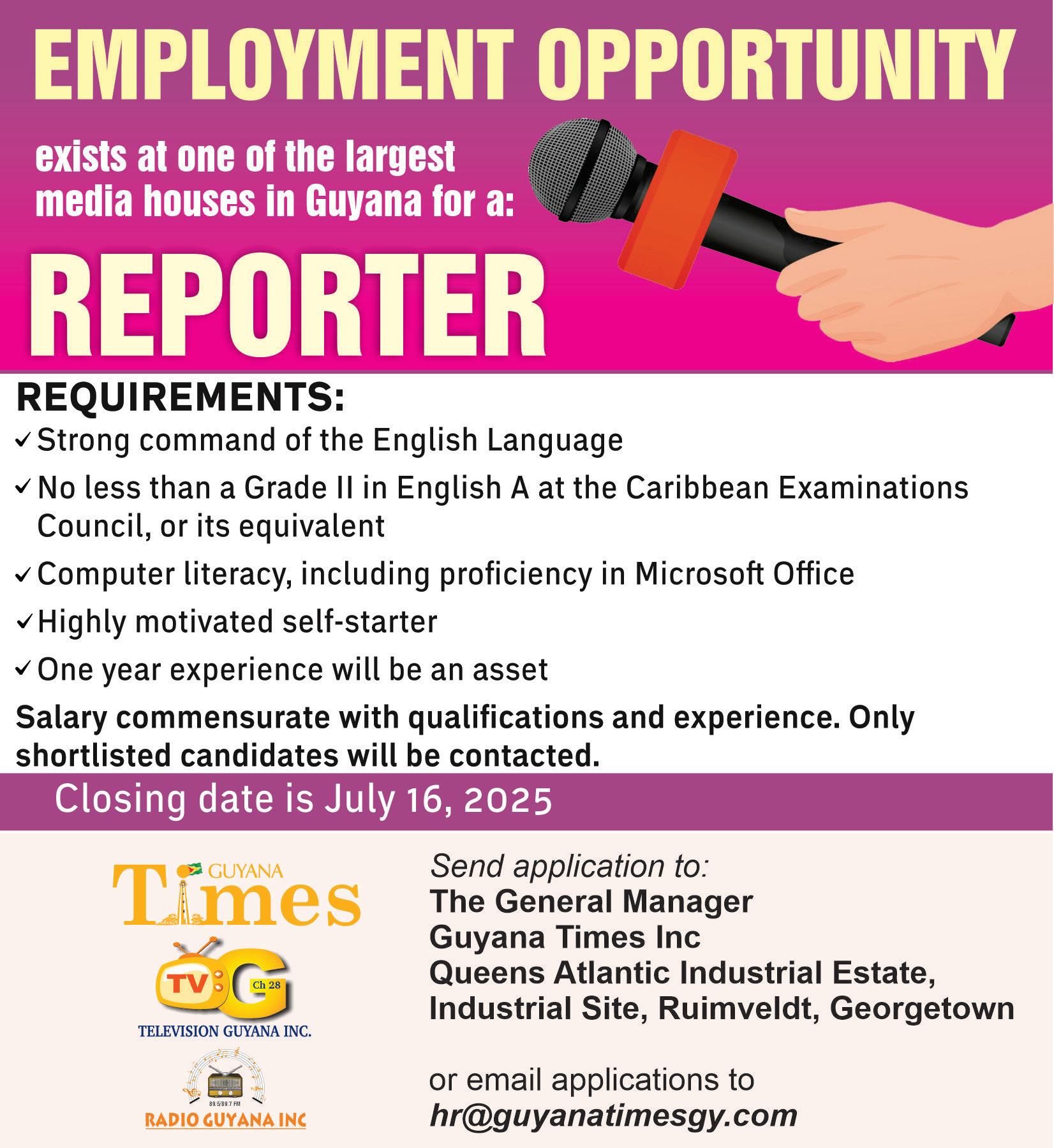
lations against children in 2024, a figure that Minister Persaud warned requires urgent action.
“Children do not start wars, and they should never be made to suffer their horrific consequences. Ultimately, their best protection is peace,” Minister Persaud declared.
She reaffirmed Guyana’s unwavering commitment to the Convention on the Rights of the Child and its Optional Protocol. Minister Persaud expressed regret that although the convention is the most widely ratified human rights treaty,
“We’re giving every child an opportunity to succeed,” he asserted.
Further, he lauded professionals in the education sector, including teachers, for their hard work. “We need, as a country, to appreciate all of the efforts that were made to achieve this level of success,” he noted.
Once re-elected to office come September 1, Jagdeo noted that investments will continue in various initiatives, with the goal of building a world-class education sector.
“We’re looking forward to the introduction of the digital school in the next term in office; we’re looking forward to using international resources, online tools and artificial intelligence to tailor individualised/personalised training programmes.” he noted.
According to him, 65% of students placed in community high schools or “primary tops” were not completing their secondary education, but this has changed as the Government works to achieve universal secondary education.
there is persistent disregard for children’s rights, including their rights to life, dignity, education and health.
“The umbrella that international law should provide to children is being dismantled daily, and inaction by the international community and impunity for perpetrators are emboldening greater violations,” Dr Persaud said.
Minister Persaud urged consistency in condemning all violations and abuses of children and called on all parties to comply with international law, including international humanitarian
law and human rights law. She also urged them to end and prevent violations and abuses against children immediately.
Further, the minister highlighted that 2024 was the second consecutive year that the highest numbers of grave violations against children were verified in the Occupied Palestinian Territories, particularly the Gaza Strip. Her presentation also focused on the high child casualties caused by contact with unexploded ordnance and mines that turn playgrounds into minefields.


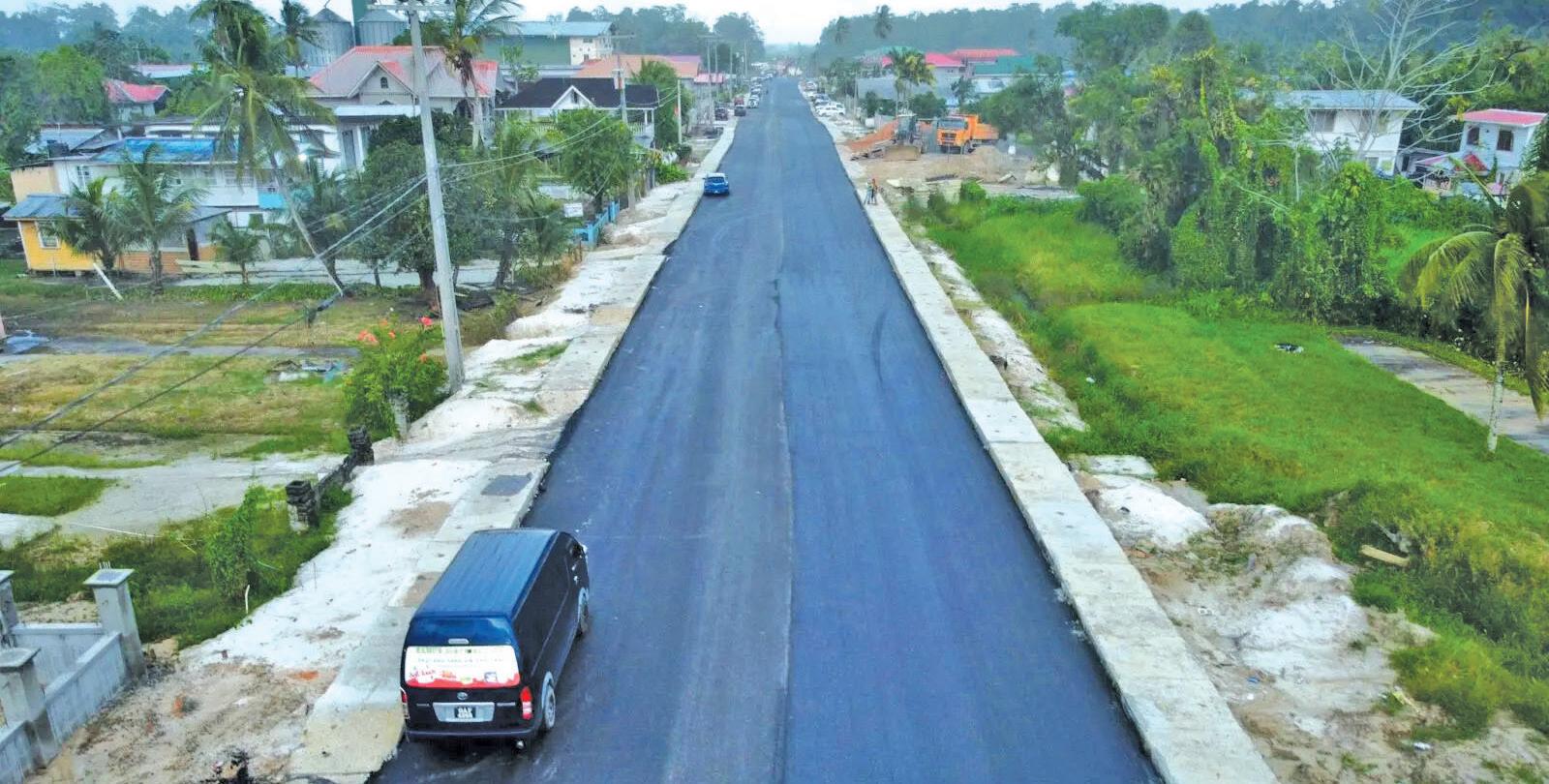
Paving works are currently underway on the Diamond to Buzz Bee Dam section of the Heroes Highway, the last phase in a transformative East-West bypass.
According to a Department of Public Information (DPI) report, completed in three phases, the Diamond to Buzz Bee Dam segment follows the Mandela to Eccles and Eccles to Diamond sections.
When finished, the corridor will provide an uninterrupted link to Soesdyke. It will also ease access to the Cheddi Jagan International Airport, a huge benefit for both passengers and freight.
Earlier this year, President Dr Mohamed Irfaan Ali visited the project site and urged contractors to accelerate their timelines by implementing a shift system that would allow work to continue around the clock.
His visit underscored the administration’s resolve to deliver the project on schedule and alleviate the mount-
ing burden faced by commuters and commercial transport operators.
Spanning 8.6 kilometres and featuring over 30 reinforced concrete bridges and two major roundabouts, the project was split into six lots. A consortium of contractors, including GuyAmerica Construction, VALS Construction, China Railway First Group Co., Ltd., NABI Construction, and H. Nauth and Sons Contracting Services, is undertaking the project.
Government officials have confirmed that several segments of lots are now over 80% complete and have ruled out any further deadline extensions.
The Ministry of Public Works, in conjunction with the Office of the President, has signalled that the timeline for delivery will be strictly enforced.
To complement this effort, additional contracts valued at $80.4 billion and $40.5 billion were awarded earli-
er this year to construct the next legs of the highway from Buzz Bee Dam to Land of Canaan and Land of Canaan to Soesdyke.
Contractors on these segments have been directed to create independent material transport routes to preserve the integrity of the newly paved sections.
The Heroes Highway project forms a cornerstone of the government’s broader infrastructure agenda as outlined in Budget 2025. Alongside the Linden to Mabura Road and the expansion of the Schoonord to Crane, it reflects a vision for a more efficient, interconnected national road network that can meet the demands of a modernising economy.
With the Diamond to Buzz Bee Dam section nearing completion, Guyana edges closer to relieving one of its most pressing transportation bottlenecks and one step closer to a future of faster, safer and more reliable travel.

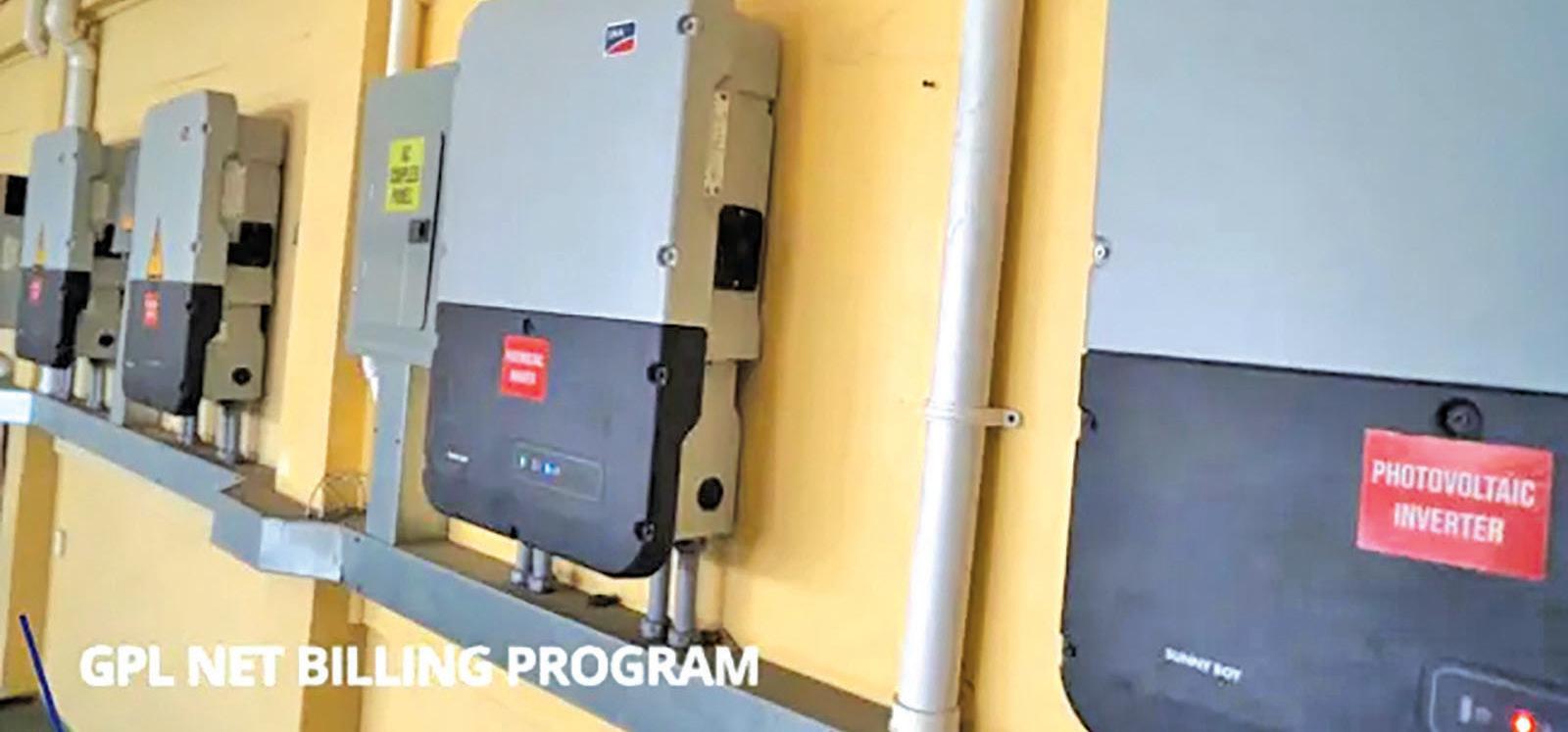
To accelerate the transition to renewable energy and achieve Guyana’s low-carbon development goals, the Government of Guyana continues to invest in several initiatives.
A Department of Public Information (DPI) report noted that these national efforts aim to diversify the energy sector while expanding access to affordable, reliable, and sustainable energy across the country.
A major initiative benefitting citizens is the Grid-tied and Net-Billing Programme. This initiative empowers households and institutions to install and use rooftop solar photovoltaic (PV) technology to meet their energy needs, reduce utility costs, and contribute to a more resilient and sustainable energy future.
It is spearheaded by the Guyana Power and Light Incorporated (GPL Inc.) and implemented nationwide in collaboration with the Guyana Energy Agency (GEA). Since the initiative was launched, GPL and GEA have been working closely as government stakeholders to advance grid-tie solar PV opportunities in Guyana and promote the
adoption of renewable energy technologies and sustainable solutions.
It is important to raise consumer awareness of these initiatives so they can understand the specific requirements for safe and effective installations, adopt the necessary measures to benefit from the Grid-tied and Net-Billing Programme and support the country’s transition to renewable energy.
Grid-tied Solar PV and NetBilling Programme
Grid-tied systems integrate a building’s solar PV system directly into GPL’s network. These systems operate by capturing solar energy through photovoltaic arrays, which are then converted by an inverter to power the building’s electrical load. Any excess energy is sent to the utility grid.
The Net-Billing Programme allows customers with grid-tied solar PV systems to earn credits for any excess electricity that is fed from their PV system back into the utility grid. It provides an additional financial incentive for renewable energy adoption while helping

consumers manage electricity costs and contribute to living sustainably.
A customer with a grid-tied installation is referred to as a ‘prosumer’. The grid-tied and net-billing arrangement is formalised between GPL and the prosumer through the signing of a Standard Offer Contract (SOC), which outlines the relevant terms and conditions. Under this arrangement, GPL will compensate the prosumer for any excess energy exported to the utility grid.
During the electricity billing period, if the value of the excess energy sent to GPL by the prosumer (received energy charge) exceeds the value of the electricity used by the prosumer (delivered energy charge), then the difference is credited to the prosumer’s Energy Credits Bank and can be applied to offset future electricity bills.
On the other hand, if the value of the electricity used by the prosumer (delivered energy charge) exceeds the value of the excess energy sent to GPL’s grid by the prosumer (received energy charge), then the credits (if available) can be withdrawn from the Energy Credits Bank to reduce or settle net energy charge.
At the end of each 12-month period, any unused credit remaining in the Energy Credits Bank will be paid to the prosumer at 90 per cent of the current tariff rate, after deducting any outstanding amounts owed to GPL.
GPL has outlined several requirements in its Interim Technical Guidelines for solar PV grid-tied installations and customers seeking to establish an interconnection agreement. These guidelines cover compliance standards, system sizing and assessment protocols for larger systems.
Guyana, guided by the goals outlined in the Low Carbon Development Strategy (LCDS) 2030, remains committed to making sustainable energy development a national priority. This commitment aims to harness our abundant natural energy sources, reduce carbon emissions and pollution, and stimulate economic growth.
The grid-tied and net-billing initiatives support Guyana’s long-term shift to renewable energy solutions, contributing to a greener, more sustainable, and low-carbon future, the report stated.

Venezuela's former head of military intelligence, Hugo Carvajal – also known as “El Pollo”, or “The Chicken” – has pleaded guilty to drug trafficking and narco-terrorism charges in the US.
US officials accused the 65-year-old of forming part of a drug-smuggling organisation made up of high-ranking members of the Venezuelan military.
The guilty plea is the latest twist in Carvajal's demise from feared spymaster to convict via his ignominious arrest in a hideout in Madrid, where he had been spotted despite donning a fake moustache and a wig.
Carvajal, who was a close ally of the late Venezuelan President Hugo Chávez, is thought to hold key information about Chávez's successor, Nicolás Maduro.
Carvajal was part of the Cartel de los Soles (Cartel of the Suns) – named after the suns which feature on the epaulettes of high-ranking

officers in the Venezuelan military – according to a statement released by the US Attorney's Office for the Southern District of New York.
"For years, he and other officials in the Cartel de Los Soles used cocaine as a weapon – flooding New York and other American cities with poison," the statement read.
The fact that Carvajal changed his plea to "guilty" two years after he denied all of the charges brought against him led to specula-
tion he may have reached a deal for a lower sentence in exchange for providing incriminating information about Maduro's government.
The US charged Maduro with "narco-terrorism" five years ago and has imposed sanctions on him and his inner circle.
Following several years during which Carvajal was on the run, he was finally tracked down to an apartment in Madrid and extradited to the US. (Excerpt from BBC News)
Police in Ecuador have recaptured the country's most wanted fugitive, drug lord Adolfo Macías Villamar.
Macías, also known by the alias "Fito", is the leader of Los Choneros, a powerful criminal gang which is blamed for Ecuador's transformation from a tourist haven to a country with one of the highest murder rates in the region.
He is also suspected of having ordered the assassination of presidential candidate Fernando Villavicencio in 2023.
Police tracked him down to what they described as an underground bunker below a luxury home in the city of Manta.
When they stormed the building, they found a sliding trapdoor, disguised to look like part of the stone floor, from which metal stairs led to Fito's underground hideout.
The "bunker" was fitted out with air conditioning, a bed, a fan and a fridge.
Fito reportedly put up no resistance and was transferred by air to the port city of Guayaquil, where several of Ecuador's largest prisons are located.
Footage of his arrival in Guayaquil shows him wearing shorts, a T-shirt and flip-flops while being led by armed security officers to a parked SUV before being transferred to the La Roca maximum-security prison.
Ecuadorean President Daniel Noboa praised the security forces for capturing
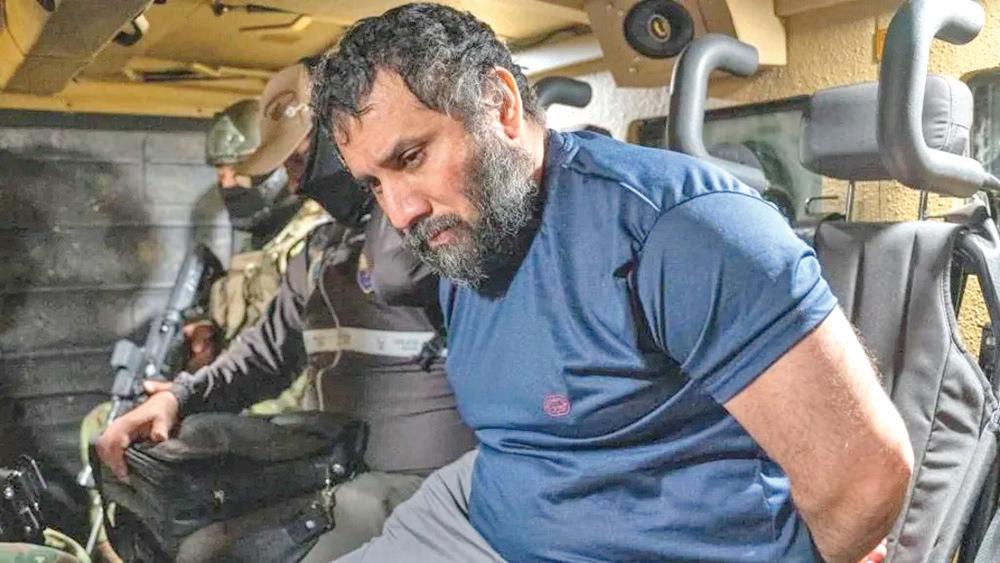
Adolfo Macías Villamar was taken to a maximum-security jail
Fito and said that he would be extradited to the US, where he has been charged with cocaine smuggling.
Fito escaped from La Regional prison in Guayaquil in January 2024 with the help of at least two guards, prompting global media attention.
From behind bars, he had coordinated the gang's activities, which include drug trafficking and extortion.
It triggered a wave of deadly prison riots, in which guards were taken hostage
and which prompted Noboa to declare a state of emergency.
On Wednesday, Noboa said that the drug lord's capture was proof his approach – which includes bringing in laws giving him sweeping powers to declare an "armed internal conflict" and which allows police to conduct searches without a warrant – was working.
"More [drug lords] will fall; we will regain [control of] the country," he posted on X. (Excerpt from BBC News)
The Caribbean may soon take a significant step toward financial self-determination with the proposed establishment of a dedicated CaricomAfreximbank, a regional institution designed to bridge long-standing financing gaps and strengthen economic ties with Africa.
According to Okechukwu Ihejirika, Chief Operating Officer of The African ExportImport Bank (Afreximbank) Caricom Office, the concept is more than just an idea; it’s part of an active strategy to expand regional financing capacity.
Afreximbank is currently operational in 12 of the 15 Caricom member states, with efforts underway to bring Jamaica and Trinidad and Tobago into the fold. But Ihejirika believes the next logical step is for the region to create its own financial engine, modelled on Afreximbank’s success in Africa.
The idea for a CaricomAfreximbank bank is being developed in collaboration with the Caricom Secretariat, alongside ongoing efforts to finance regional development in key sectors, such as sustainable energy.
“We are working with the Caricom Development Fund to set up a fund targeted at the sustainable energy sector. That is a huge one, and
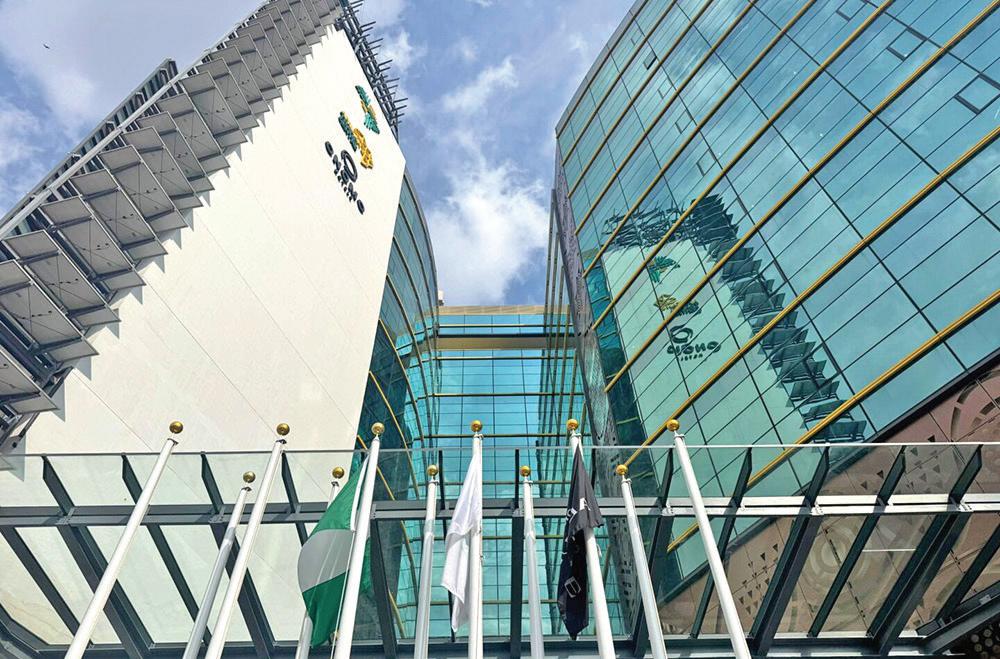
we want to see that succeed,” Ihejirika noted while speaking with journalists during Afreximbank’s 32nd Annual Meetings (AAM) in Abuja, Nigeria.
While the Caribbean and Africa share centuries of historical and cultural connections, modern trade and investment ties have remained underdeveloped, hindered by a lack of air and sea connectivity, limited bilateral agreements, and outdated legal frameworks.
“There are a lot of barriers,” Ihejirika acknowledged. “We were kept so far apart from each other. We were not communicating; we were not exploring what could be done between ourselves.” “There is no trade agreement, no bilateral agreement between any Caribbean country and an African country,” he added.
“That is a gap. You see, we have bilateral agreements with every other person but ourselves.”
Ihejirika is also of the view that the absence of direct transportation links between African countries and the Caribbean also compounds the problem.
“You find out that we have gone through the US or the UK to come here. That ought not to happen,” he stressed. “The lack of direct flights and sea links hurts trade, business expansion, and even cultural reconnection.”
“We want to see that study that will give birth to or validate that idea,” Ihejirika concluded. “Whether we need an Afreximbank for Caricom or not, let’s find out. But I strongly believe we do.” (Excerpt from Now Grenada)
Jamaican Govt ordered to pay J$120M to man imprisoned for 50 years without trial
The Supreme Court of Jamaica has ordered that the state pay J$120 million to George Williams, the man who spent 50 years in prison and 42 years without a review.
The judgement was
handed down Thursday by Judge Sonya Wint-Blair.
Williams is to receive J$42M for vindicatory damages and close to J$79M for compensatory damages.
Five years ago, Williams, who is now 76 years old, walked out of prison as a free man. When he was 20 years old, he was arrested and charged with the murder of a man in July 1970. He was declared unfit to plead but was still held in prison. (Excerpt from Jamaica Observer)
An Argentine judge on Thursday ordered that the 10 people accused of the deadliest bombing in the country's history face a trial in absentia, three decades after the attack on a Jewish community centre that killed 85 people and
wounded more than 150.
Argentine authorities have charged 10 people as perpetrators of the 1994 attack on the Argentine Israelite Mutual Association (AMIA) in Buenos Aires –including former Iranian government officials and
Five schoolgirls, ages 14 to 18, have been formally charged with assaulting a Form Four Holy Faith Convent, Couva, student outside the school on June 10.
Assistant Commissioner of Police (South Central) Wayne Mystar said the charges were laid on June 25 after a thorough investigation conducted by WPC
Boodoo attached to the Couva Police Station.
All five girls were charged with the offence of assault occasioning actual bodily harm.
Newsday understands the girls all attended different schools in the Couva area.
The brutal attack was captured on video and posted to social media. It showed the
victim in her school uniform being beaten by five girls who wore casual clothes. A male passer-by intervened and broke up the fight.
The victim's mother, who asked to not be named, told Newsday she was grateful for the police action that led to the charges. She said her daughter suffered multiple injuries and bruises and, most seri-
ously, injuries to one of her eyes impairing her vision and had not been to school since the incident but would return at the start of the new academic year in September.
Following the attack, the Ministry of Education immediately launched an investigation which included suspending the accused.
(Source: Trinidad & Tobago Newsday)
others whom it says are members of the Lebanese armed group Hezbollah. Those accused include Iran's former intelligence minister Ali Fallahian, former foreign minister Ali Akbar Velayati, former Revolutionary Guard commander Mohsen Rezaee, former ambassador to Argentina Hadi Soleimanpour and other embassy staff.
Iran's mission to the United Nations in New York did not immediately respond to a request for comment. Tehran has previously denied involvement and refused to turn over suspects.
People of Lebanese and Colombian nationality accused of being tied to Hezbollah are also among those accused.
(Excerpt from Reuters)





Oil prices edged higher on Thursday as crude inventories in the United States fell on higher demand as the summer driving season ramped up, while concerns over Middle East supply risks eased, offsetting some gains.
Brent crude futures settled 5 cents, or 0.07%, higher at $67.73 a barrel. US West Texas Intermediate crude gained 32 cents, or 0.49%, to $65.24 a barrel.
Both benchmarks climbed nearly 1% on Wednesday, recovering from losses earlier in the week after data showed resilient US demand. Brent futures were trading below their close of $69.36 on June 12, the day before Israel started airstrikes on Iran.
The US driving season had started slowly but was now stoking demand, ANZ analysts said.
"The market is starting to digest the fact that crude oil inventories are very tight all of a sudden," said Phil Flynn, senior analyst with the Price Futures Group.
US crude oil and fuel inventories fell in the week to June 20 as refining activity and demand rose, the Energy Information Administration said on Wednesday.
Crude inventories fell by 5.8 million barrels, the EIA said, exceeding analysts' expectations in a Reuters poll for a 797,000-barrel draw.
Also supporting oil prices, the dollar index, which measures the greenback against a basket of currencies, sank to a three-year low as a report that President Donald Trump was planning to choose the next Federal Reserve chief early fuelled fresh bets on US rate cuts.
A weaker dollar makes oil less expensive for holders of other currencies, increasing demand.
However, signs of easing Middle East supply risks offset some gains.
Shortly before oil markets settled on Thursday, Prime Minister Benjamin Netanyahu said the outcome of Israel's war with Iran presented opportunities for peace that his country must not waste.
"(The) rapid push for a ceasefire suggests that President Trump remains sensitive to high oil prices, in our view, potentially capping the geopolitical risk premium even as the conflict may linger," Citi said in a note on Thursday. (Excerpt from Reuters)
Secretary of State Marco
Rubio has announced a new visa restriction policy aimed at stopping the flow of fentanyl and other illicit drugs into the United States.
Imposing visa restrictions on drug traffickers, their family members, and close personal and business associates will not only prevent them from entering the United States, but it will also serve as a deterrent for continued illicit activities, Rubio said in a statement issued by the State Department. (Reuters)
US President Trump has blamed the Iran intelligence leak on Democrats and calls for prosecution.
Trump has claimed, without evidence, that “the Democrats” leaked an early intelligence assessment that found US strikes on Iran’s nuclear sites were less effective than has been touted by the president and his administration and only set Tehran’s nuclear program back by months, and called for prosecution.
Trump wrote on his Truth Social platform: “The Democrats are the
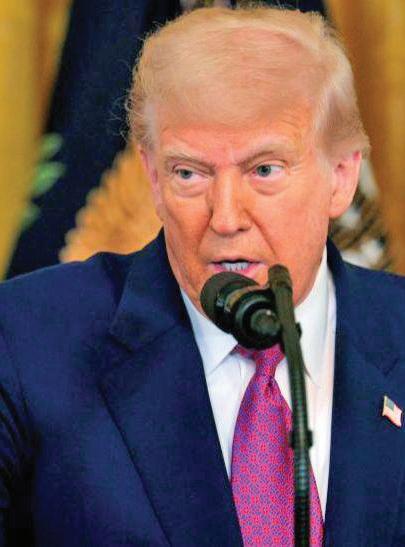
ones who leaked the information on the PERFECT
FLIGHT to the nuclear sites in Iran. They should be prosecuted!”
The initial classified US report produced by the Defence Intelligence Agency – the intelligence arm of the Pentagon – concluded that Trump’s strikes on Iran’s nuclear facilities over the weekend did not destroy two of the sites and found that key components of Iran’s nuclear programme, including centrifuges, were capable of being restarted within months.
It sent the Trump administration on the defensive Thursday, with officials insisting that the strikes “oblit-
erated” Iran’s nuclear capabilities and attacking the media for coverage of the report.
Defence Secretary Pete Hegseth also said he wasn’t aware of any intelligence to suggest that Iran had moved the highly enriched uranium from any of the three nuclear sites the US struck, and Trump also said, without evidence, that “nothing was taken out of the facility” ahead of the strikes.
The White House press secretary also said there was “no indication” that the uranium had been moved. (Excerpt from The Guardian)
Iran s supreme leader, Ayatollah Ali Khamenei, has threatened to respond to any future US attack by striking American military bases in the Middle East in his first public comments since a ceasefire with Israel was declared.
The 86-year-old, who has not been seen in public since taking shelter in a secret location after the outbreak of the war on 13 June, said his coun-
try had delivered a slap to America s face a reference to an Iranian missile attack on a US base in Qatar on Monday, which caused no casualties.
He claimed that the US strikes on Iran s nuclear sites did not achieve anything and Donald Trump had exaggerated their impact.
In pre-recorded remarks that were aired on state television, he hailed his country s victory over Israel and vowed
never to surrender to the US.
In an interview with Al Jazeera, a foreign ministry spokesperson, Esmail Baghaei, repeatedly avoided describing the state of the country s nuclear programme before saying, Our nuclear facilities have been severely damaged; that is certain.
Khamenei made no reference to the possible restart of talks and instead accused Trump of revealing that his
real objective had been Iran s surrender, something he vowed would never happen. Later on Thursday,Iran Foreign Minister Abbas Araqchi said in an interview on state TV that Iran currently has no plan to meet with the United States, contradicting U.S. President Donald Trump's statement that Washington planned to have talks with Iran next week. (Source: The Guardian, Reuters)
The head of Ukraine's army, Gen. Oleksandr Syrskyi, has said his troops have stopped Russian advances in the northeastern border region of Sumy.
During a visit to the front on Thursday, Syrskyi said the line of combat had
been "stabilised" and that the Russian summer offensive in the area had been "choked off".
However, Syrskyi also added that he had personally gone to check on fortifications in the region and that more were urgently needed.
Syrskyi's comments
on the successes of the Ukrainian troops in Sumy back recent statements by Ukrainian officials that Russia's pressure on the region was declining.
However, the situation remained "volatile", Border Guard spokesperson Andriy Demchenko said earlier this week.
Sumy borders the Russian region of Kursk, parts of which were seized and occupied last year by Ukrainian forces in a surprise offensive before being almost totally driven out months later. (Excerpt from BBC News)
China's collateral demands curbing emerging countries' ability to manage finances, study shows

China's practice of securing its loans to low-income nations through commodity revenue streams and cash held in restricted escrow accounts is curbing their ability to manage their finances effectively, a study published on Thursday showed.
China has lent hundreds of billions of dollars for infrastructure and projects in developing countries but has been criticised for using earnings of commodity exports from borrower nations as security for the loans, sometimes arranged during times of economic strife for the borrower.
Beijing has repeatedly denied that its lending practices towards poorer countries are unscrupulous.
China's finance ministry did not immediately respond to a request for comment.
China's total public and publicly guaranteed lending to low- and middle-income countries totals $911 billion, said the report by AidData, the Kiel Institute for the World Economy and Georgetown University, together with other partners.
Of that, nearly half or $418 billion across 57 countries is secured with cash deposits in Chinese bank
accounts, it said.
"As security, Chinese lenders strongly prefer liquid assets in particular, cash deposits in bank accounts located in China. They also want visibility and control over revenue," said Christoph Trebesch of the Kiel Institute.
"Some of these revenues remain offshore beyond the control of the borrowing government for many years," the report said, adding the lack of access or transparency compromises debtor governments' ability to monitor and steer their fiscal affairs.
China applies the practice to its lending to borrow-
ers in Africa, Asia, Latin America and the Middle East, the study, which covered 2000-2021, found.
"Our research reveals a previously undocumented pattern of revenue ring-fencing where a significant share of commodity export receipts never reach the exporting countries," said Brad Parks, executive director of the AidData research lab.
The International Monetary Fund and the World Bank have in the past raised concerns about the impact of collateralised lending to developing countries. (Excerpt from Reuters)




















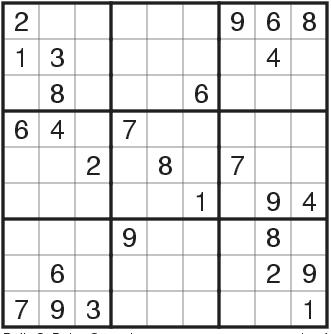









Wake up, smell the roses and welcome the weekend with vim and vigor. Today is about socializing, communicating and sharing your feelings and intentions with the people you encounter.
Rethink your schedule and how you want to respond to someone close to you. Take a back seat, give yourself a moment to rethink your response and find a positive way to reply.
You'll face an explosive situation if you are too aggressive in your approach to beliefs and politics. Choose your battles wisely, and you'll gain ground and make positive connections.
Communication can spare you from taking on too much. Concentrate on saving, security and peace of mind, and turn frustration and anger into personal gain.
Raise your voice, share your thoughts and make a difference. Refuse to let what others think steal your focus or turn your energy into anger. Wisdom and common sense are your tickets to success.
With change comes choices and decisions that aren't always easy. Invest time and effort to ensure you make meaningful decisions that are not disruptive to you or the people you love.
Align yourself with people who share your objectives. Do your part to gain access to those who have the power to bring about change. Become part of the solution, and you'll encounter someone who stirs your emotions.
Spend more time nurturing what's important to you. Your relationships will suffer if you lack compassion or neglect people vying for your approval or attention.
Take care of your money, possessions and emotional well-being. Show your desire and interest in learning and excelling to meet their demands. Secure your personal and professional prospects.


Research, fact-check and question anyone pushing you to follow the herd. Ask questions and look for options that make you feel comfortable. Do what's best for you.




Refuse to let others decide for you. Speak up, share your thoughts and feelings, and be bold with words and actions. Don't gamble with your savings, emotions or what you've worked hard to acquire.
Actions speak louder than words. Do what you want, and don't apologize for looking out for yourself. Use your status to make inroads with people in a position to help.





Prolific national, youth, and all-round cricketer Romario Ramdeholl has once again benefited from the ‘Cricket Gear for Young and Promising Cricketers in Guyana’ initiative, being jointly facilitated by Anil Beharry of Guyana and Kishan Das of the USA.
The Rose Hall Community Centre Cricket Club (RCCC) right-arm off-spinner and right-handed batsman was the recipient of one cricket bat, one pair of thigh pads and one




pair of batting gloves.
Ramdeholl, who was recently named vice captain of Guyana’s National Under19male team, is tipped to be the captain of the National Under-17 team, which will also compete regionally in a few months; a rare accomplishment in the history of Guyana youth cricket.
He expressed gratitude for the gear and continued assistance from the project and promised to do well in the upcoming junior regional tournaments. The facilitators of the project have been following the career of the talented young cricketer at all levels and are impressed with his exceptional talent, hence the support.
According to the facilitators, this project will continue to improve the lives of youths in every community.
“We are pleased to be part of the development of young cricketers in Guyana. Our aim is to keep them off the streets and get them actively involved in sports, cricket in particular,” they noted in a statement.
Total cricket-related items received/purchased so far: $630,000 in cash, thirteen coloured cricket uniforms, one set of stumps, two trophies, thirty-five pairs of cricket shoes, thirty-eight pairs of batting
pads, forty-seven cricket bats, forty-two pairs of batting gloves, twenty-nine thigh pads, three pairs of wicketkeeping pads, six arm guards, two chest pads, two boxes, fourteen gear bags, thirteen bat rubbers, seven helmets, one fibreglass bat, one pair of floppy hats, one pair of inners, sixteen boxes and four white cricket balls, thirteen boxes of red cricket balls, one bat cone and twenty-eight footballs. In addition to the above, gear with a value of over $600,000 was donated by Sheikh Mohamed, former national wicketkeeper/batsman. In addition, all cash collected is being used to purchase cricket gear requested and not available at the time.
To date, ninety-nine players, male and female, from all three counties of Guyana have benefited directly from cash, eight gear bags, two trophies, four arm guards, thirty-six bats, four boxes, six helmets, thirty-seven pairs of cricket shoes, twenty-one pairs of batting pads, twenty-six thigh pads, one bat grip, forty pairs of batting gloves, one pair of wicketkeeping pads and four pairs of wicketkeeping gloves with one pair of inners. Many others benefited indirectly. In addition, two clubs in the Pomeroon area benefited from two used

Jediah Blades’ impressive spell blew away the Sri Lanka Emerging Players during the third One Day International for the West Indies Academy at the Sir Vivian Richards Stadium in Antigua and Barbuda on Thursday, June 26th, 2025.
Sri Lanka Emerging Players won the toss and elected to bat first. They got off to a really poor start, as the team was 18 for 4 after seven overs. Sahan Kosala scored 40 from 52 balls,

and captain Dhananjaya Lakshan scored 36 from 61 balls. They were the top scorers for Sri Lanka. Left-arm seamer Blades led the bowling unit for the West Indies Academy as he had figures of 5 for 28 in his eight overs. Leg spinner Zishan Motara supported him with figures of 3 for 19 as Sri Lanka was restricted to a total of 144 all out in 35.5 overs. In reply, a 53-run open-
ing stand between Jewel Andrew and Ackeem Auguste set West Indies Academy off to a good start. Both Auguste and Andrew topped the scoring charts with identical scores of 38. Guyanese Mavendra Dindyal finished off the innings, scoring 32 not out as the West Indies reached 147 for 3, winning the game by 7 wickets and winning the series 2-1.
bats. Pomeroon, Leguan and Wakenaam Cricket Committees and Cotton Tree Die Hard also received one box of red cricket balls each, and Cold Fusion Cricket Club received thirteen colour uniforms, while RHCCCC received six boxes of balls, fifteen white cricket shirts, one pair of junior batting pads, one pair of wicket-keeping gloves, and two sets of stumps and bails. Other beneficiaries are the Essequibo Cricket Board, the Town of Lethem, youth coach Travis Persaud (one box of red cricket balls), male and female teams playing the traditional hardball and softball in the Upper Corentyne area,
No.65 Young Titans with 30 T-Shirts, youths of Just Try Cricket Club, Wakenaam Cricket Academy (one box of white balls), Shamar Joseph, Nehemiah Hohenkirk, Shamar Apple, Leguan Cricket Committee, Tucber Park Cricket Club, Malteenoes Sports Club (nine cricket balls each), Kendall’s Union cricket club with twelve red balls, Lower Corentyne, Corentyne Comprehensive and JC Chandisingh Secondary Schools with twelve red balls each, Thaddeus Lovell with one pair of cricket shoes, GCC, two boxes of white cricket balls, Bush Lot United Sports Club, one box of red balls, West Demerara
Cricket Association, one box of white balls, Blairmont Cricket Club with one pair of batting pads, one cricket bat, one helmet and cricket balls and Tagore Memorial Secondary School. According to the facilitators, cricket-related items, used or new, are distributed free of cost to young and promising cricketers in Guyana. “Skills, discipline and education are important characteristics of the recipients. Talent spotting is being done across the country, and club leaders also assist to identify the same. Progressive and well-managed cricket clubs with a youth programme will also benefit,” they noted.
San Francisco Unicorns became the first team to advance to the playoffs of the MLC 2025, beating Seattle Orcas by 32 runs in Dallas on Wednesday night. They remain unbeaten in this competition, having won all six matches so far, and also strengthened their position at the top of the points table. Orcas suffered their fifth straight defeat this season and continue to sit at the bottom.
Captain Matthew Short and Romario Shepherd’s allround heroics, along with Haris Rauf’s four-wicket haul, were the highlights for Unicorns on a day when they had to win mini-battles.
Asked to bat first, Unicorns lost Finn Allen in the second over. But Jake Fraser-McGurk and Short put on a 68-run second-wicket stand that not only steadied the innings but also provided them momentum. McGurk fell for a well-made 21-ball 34 in the eighth over to left-arm spinner Harmeet Singh, and this triggered a collapse as Unicorns slipped from 86 for 1 to 103 for 6. Short, who smashed seven fours and two sixes in his 29-ball stay, departed for 52 when Harmeet dismissed him and Hassan Khan in the same over.
Shepherd then blasted four sixes and four fours in his 56 off 31 balls, lifting Unicorns to a competitive 176 for 8. Gerald Coetzee also chipped in with 3 for 34, including key middle-order wickets. However, this late onslaught proved more than enough, with the Orcas once again denied a maiden win

despite a bright start to the chase.
Orcas picked up 29 runs in the first two overs, thanks to Shayan Jahangir, who looked impressive throughout his knock. He played a range of eye-catching shots to score 40 off just 22 balls. However, Shepherd provided the breakthrough by dismissing Jahangir in the seventh over.
In the following over, Short struck twice, removing both David Warner and Kyle Mayers. Orcas never recovered from these early setbacks and continued to lose wickets at regular intervals. Shimron Hetmyer and Sujit Nayak attempted to rebuild the innings, but only briefly. Rauf, who had earlier dismissed
Heinrich Klaasen, wrapped up the innings by removing Coetzee and Hetmyer in the 16th over and Cameron Gannon in the 18th, finishing with figures of 4 for 32. (ESPNcricinfo)



Archery Guyana recently had the elation of celebrating the continued international representation and excellence of its World Archery Americas’ certified Continental Judges, who are serving with distinction at major events across the globe in 2025.
Robert Singh recently officiated at the South American Open Championships held in Medellín, Colombia, from May 20 to 25, 2025, after the event was relocated from its
original venue in Peru. His presence at this prestigious championship further underscores Guyana’s growing footprint in regional and international archery governance. Currently on assignment, Nicholas Hing is in Santo Domingo, Dominican Republic, where he is serving as a judge at the Central American and Caribbean Games Qualifier, taking place from June 16 to 22, 2025. Hing continues to earn
commendation for his experience and dedication on the archery range.
Meanwhile, Mohamed Khan has been selected as an alternate judge for the Para World Ranking Event to be held in Chicago, USA, from August 27 to 31, 2025. His confirmation to the judging panel for the Caribbean Development Championships in Trinidad & Tobago, from October 22 to 26, 2025, affirms his rising trajectory as a respected judge within the

Ahead of the highly anticipated second round of the Guyana Motor Racing and Sports Club’s (GMR&SC) second round of circuit racing action, the biking fraternity has organised a meet and greet for fans.
Set for the West Coast Mall on Saturday, June 28, the meet and greet is expected to see all the competitors in the Street Bike, Superstock A and B class -
es. According to a spokesman, “The idea is to build the hype ahead of the July 6 race meet that the GMR&SC has coming up.
As the biking fraternity, we know we have a number of fans all across the country, and we decided that it was time to give back to them.”
“This time, we have decided to give it back in a way where fans can get a
chance to witness the action free. Yes. We will be giving away free tickets to the July 6 event.”
Fans can also get their photos taken with their favourite riders as well as ask questions and get more information on the event,” the spokesman concluded.
The GMR&SC second round of circuit racing action is set for July 5 & 6 at the South Dakota Circuit Timehri.
Americas region.
World Archery Americas recognises Continental Judges as officials who have successfully completed specialised certification and who consistently demonstrate technical proficiency, neutrality, and adherence to World Archery standards across diverse formats, from para-archery to elite continental championships.
President of Archery Guyana, Vidushi PersaudMcKinnon, offered high praise for the judges and their work, stating, “It fills us with immense pride to see our Continental Judges actively contributing on the international stage. Robert, Nicholas, and Mohamed exemplify the values of fairness, integrity, and excel-
lence that are the bedrock of World Archery. Their appointments reflect not only their personal commitment but also Archery Guyana’s strategic investment in technical human resource development. We salute their service and look forward to their continued contributions as ambassadors of Guyanese archery.”
As Archery Guyana continues to nurture both athletes and officials, these appointments signal a broader vision of integrating Guyana into the heart of international archery, not just through


perfor - mance, but also through meaningful leadership and stewardship of the sport’s rules and values.

Set to tee off next Wednesday, the Guyana Tourism Authority (GTA), through the Ministry of Tourism, has reaffirmed its commitment to the development of golf in Guyana by supporting the 3rd Annual National Junior Golf Championship. The event will take centre stage on Wednesday, July 3, 2025, at the Nexgen Golf Academy, Woolford Avenue.
According to GTA Director Kamrul Baksh, “We have seen the tremendous growth and international interest in the development of golf in Guyana by the Guyana Golf Association (GGA), and with the massive amount of travel and foreign currency that accompanies golf tourism, we see this as a perfect avenue for the development of sports tourism in our country.”
As anticipation builds for the championship, all eyes are on Leguan Secondary and Region Three, who are seeking to make history with a three-peat victory. With golf now part of the Ministry of Education’s Priority Programme in schools since 2023, many
schools across Guyana now benefit from dedicated golf coaches. This is expected to reflect in stronger performances across the board in this year’s tournament.
GGA President Aleem Hussain praised the GTA and the government for their continued support, stating, “When you consider that golf in Guyana has been transformed from a sport for the elite few to one embraced by thousands of young people—with the help of non-traditional and visionary supporters— you can only imagine the heights we will reach in the coming years.”
The National Junior Golf Championship is free and open to the public. Competitors will enjoy complimentary meals, beverages, snacks, trophies, and prizes. Transportation for participants from Parika and New Amsterdam is generously being provided by Commissioner of Police Clifford Hicken and the Guyana Police Force.
Sponsors and supporters for the event include ExxonMobil Guyana, the Ministry of Education (MoE), Regal Stationery &
Computer Centre, Sunshine Snacks, Guyana Beverages Inc., Sterling Products Ltd, Shangri-La Gardens, Praetorian Executive Security Services, University of Guyana –Vice Chancellor Paloma Mohamed, Toolsie Persaud Ltd, Trophy Stall, TMK 2000 Inc., MovieTowne Guyana, Telco Solutions & Mobile Advertising, Pegasus Hotel & Suites, Captain Gerry Gouveia and Roraima Airways, Dustin Spivey, TriStone Auto, Comfort Sleep, Fixit Hardware Depot and Edward B. Beharry Group of Companies.



Quality fast bowling on a pitch offering plenty, batting frailties and a collection of third-umpiring controversies were among the headlines on another engrossing day at Kensington Oval as the ball continued to dominate with the opening Test between Australia and West Indies set to be a low-scoring scrap. By the close, Australia sat with a lead of 82 as the top-order faltered again in demanding conditions, having bowled the home side out for 190. They would be confident of defending a target of around 200 although will still take considerable work to achieve on a surface where runs have been at a premium. What the unbeaten pair of Travis Head and Beau Webster, along with next batter Alex Carey, can deliver may prove decisive.
Sam Konstas, who nearly chopped on to the first ball of the innings, was dropped twice in the second over from Shamar Joseph, first by John Campbell at third slip as he charged and drove, then a low chance to Justin Greaves at second. On the dressing room balcony, West Indies coach Daren Sammy couldn't contain his frustrations. It took the tally of chances off Shamar Joseph to five in the game.
In the end, he didn't need the fielders' help to end Konstas' painful 38-ball innings as, like in the first innings, he angled one back to expose a technical flaw as Konstas chopped into his stumps for 5. By then, Alzarri Joseph had already removed Usman Khawaja to a borderline lbw from round the wicket and at 34 for 2 the innings needed stabilising.
For 10 overs, Cameron Green and Josh Inglis managed that although the former required the DRS to save him when he was given lbw on 13 only for replays to show the ball carrying over the stumps. One run later, Green was at the centre of the day's latest significant third-umpire moment when Adrian Holdstock ruled there was an edge to what would have been a three-reds decision against Greaves, but it became something of a moot point in the same over when Green slashed to slip.
Inglis' stay had ended a few minutes earlier when he shouldered arms to Jayden Seales and lost his off stump, the second batter to fall in that manner for the day after Brandon King. Head and Webster ensured against further damage with Webster being especially proactive. But Shamar


Joseph remained a constant threat, regularly keeping his speeds over 140kph, and struck Head a blow on the
determined the ball was safely in his glove despite being very close to the ground.

hand shortly before stumps.
West Indies had taken a slender first-innings lead of 10 having potentially been placed for something a little better at 139 for 5. Australia's bowlers shared the success with Pat Cummins and Josh Hazlewood especially impressive, but the main talking points of the innings came with the wickets of captain Roston Chase and top-scorer Shai Hope whose dismissals were both upheld by Holdstock.
Chase was given lbw to Cummins and reviewed straightaway, indicating he thought he had hit the ball, but the on-field decision was upheld amid a flurry of uncertain marks on Ultra Edge. Hope was then brilliantly caught, one-handed, by Carey (who had earlier dropped a much more regulation catch) and Holdstock
West Indies had resumed on 57 for 4 and, to begin a theme for the day, the third umpire was in action early on as Cummins called the DRS when Australia thought Chase had been trapped pad first by Hazlewood. Initial replays suggested that may have been the case, and the Australians became animated, but it was ruled to be bat first.
In the second over of the day, Chase was given a life on 4 when Konstas couldn't get his hands to a sharp inside edge at short leg while Carey gave King a reprieve on 26 when he couldn't hold an edge that was climbing on him. Soon, though, Hazlewood got the reward he deserved when King misjudged a leave to a delivery that was always angling back and lost his off stump. However, that proved

Australia's only success of the morning as Chase and Hope forged a 67-run stand. Hope, on his return to Test cricket after a three-and-ahalf-year absence, unfurled a couple of pristine drives early on, particularly one straight back past Mitchell Starc.
Chase, meanwhile, took the introduction of Nathan Lyon as an opportunity to attack. He edged wide of slip off the back foot. A couple of overs later he deposited him twice down the ground, the second occasion for six over long-off.
Shortly after lunch Cummins, as he so often does, provided the breakthrough when he trapped Chase lbw. Webster nipped
in to remove Greaves then, crucially, Hope when Carey's brilliant one-handed catch to his left to gather an inside edge was ruled to be clean. Hope had been happy to leave the field while the umpire review was taking place and was back in the dressing by the time the confirmation arrived although Sammy appeared far from convinced.
Alzarri Joseph's forceful 23 turned a potential deficit into a small lead, taking West Indies past Australia's total with a thumping straight six. And so it was left virtually all-square; a few hours later it would have been a brave person to call how this match will end. (ESPNcricinfo)





